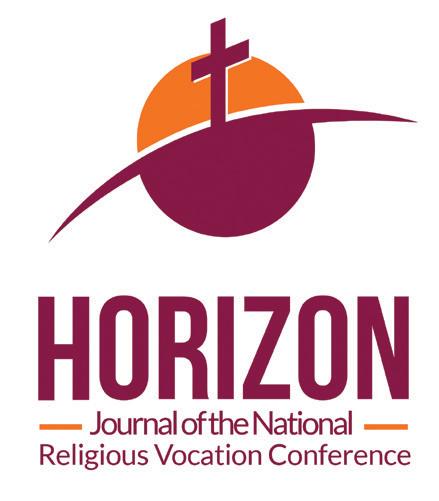




+ Diocesan Priesthood
Religious Life
Permanent Diaconate
Incardination
• Comprehensive psychological & spiritual evaluation
• Multidisciplinary team approach
• Feedback session with written report
• Concrete recommendations to candidate & formation team
• Aligned with USCCB guidelines


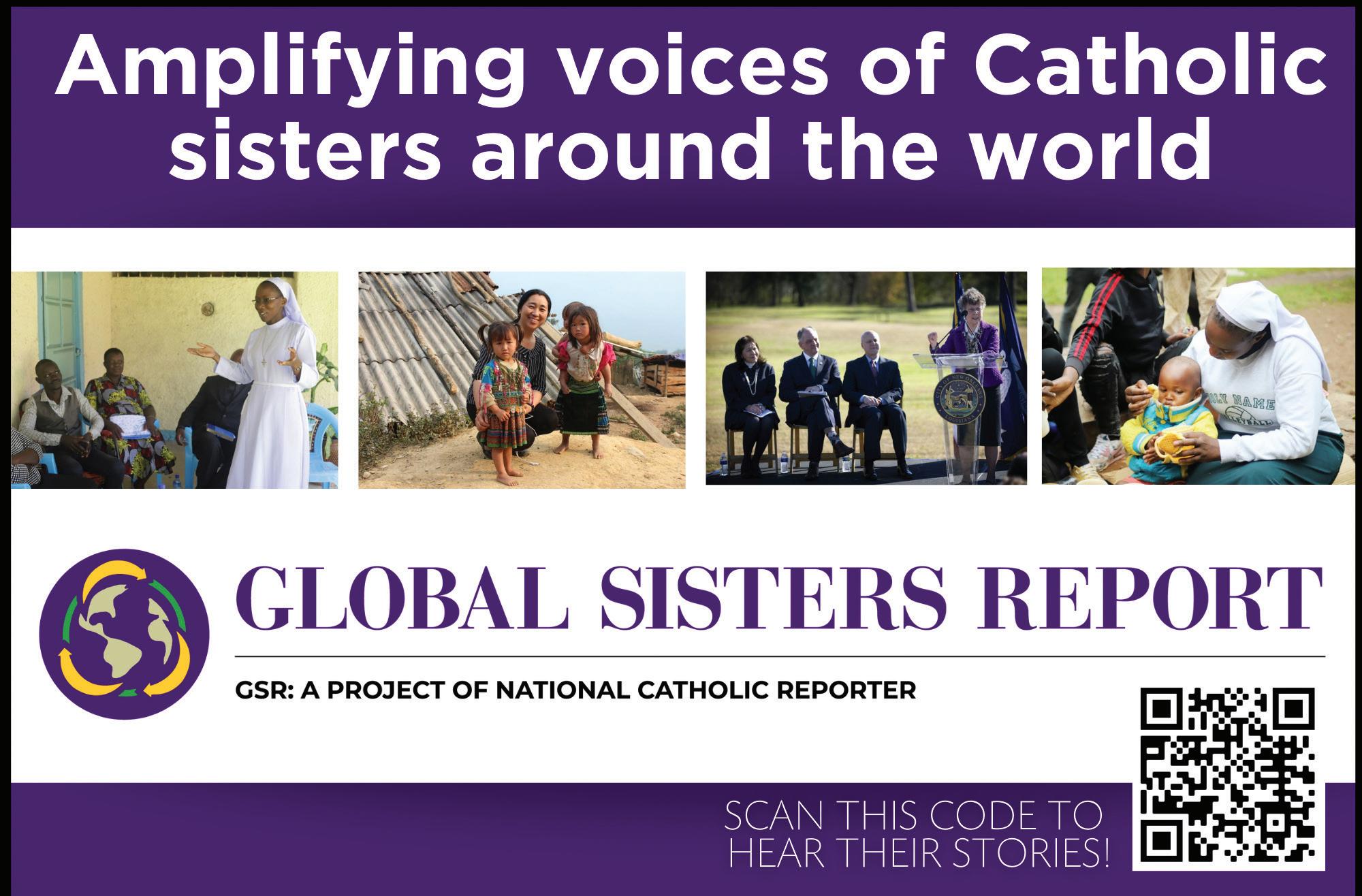
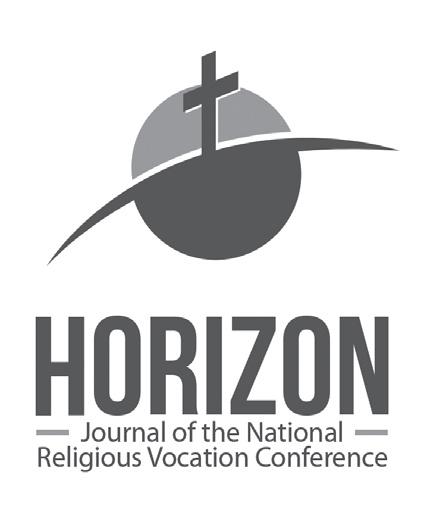

We are excited to announce that our Summer Institute participants have chosen a Convocation logo to beautifully complement our inspiring theme selected by the National Board: Bearers of Hope/Portadores de Esperanza/Sứ Giả Hy Vọng. Join us as we celebrate this spirit of hope together, and mark your calendars to attend Convocation in Orlando, Florida, November 19-23, 2026!
Convocation unites the NRVC membership and its trademark excellence in workshops, liturgies, keynote presentations, and networking. This conference also includes the member business meeting, awards, and invitations to collaborators. It provides the opportunity to celebrate our mission and vision while engaging in professional development and ongoing formation. Plans are
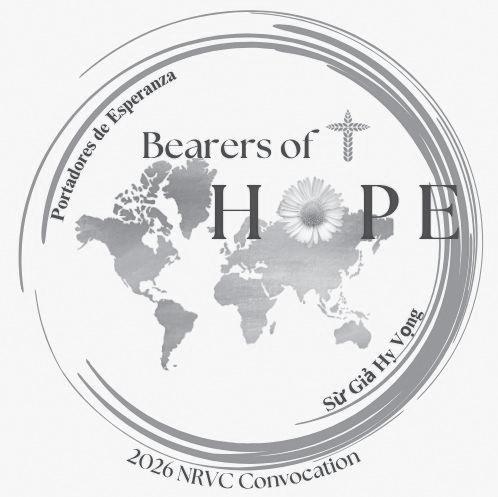
underway to select presenters and solicit sponsors. Many levels of sponsorship are available, and we welcome your support. Please direct questions to Sister Debbie Borneman, SS.C.M. at debbiesscm@nrvc.net.
The NRVC has designed the Walking Humbly Together video series to serve as a valuable resource for fostering culturally mindful conversation and advocacy in vocation ministry. We are sharing personal narratives to create opportunities for reflection and engagement, encouraging viewers to examine their own practices and perspectives on interculturality and anti-racism. For more information, go to http://www.nrvc.net or visit http://www.youtube.com/@NRVC.
In a September 2025 statement, the NRVC Board affirms its commitment to vocation ministry rooted in the Gospel, where each person is honored as created in the image of God. The Board goes on to say that in a world marked by division, “we recognize the urgent call to practice intercultural transformation—a lifelong posture of self-awareness, learning, and openness to transformation through encounter.”
The NRVC acknowledges the importance of reflecting on cultural identities, listening to the lived experiences of others, recognizing the impact of systemic injustice, and creating inclusive spaces for discerners. Read the full text at https://tinyurl.com/NRVC-intercultural.
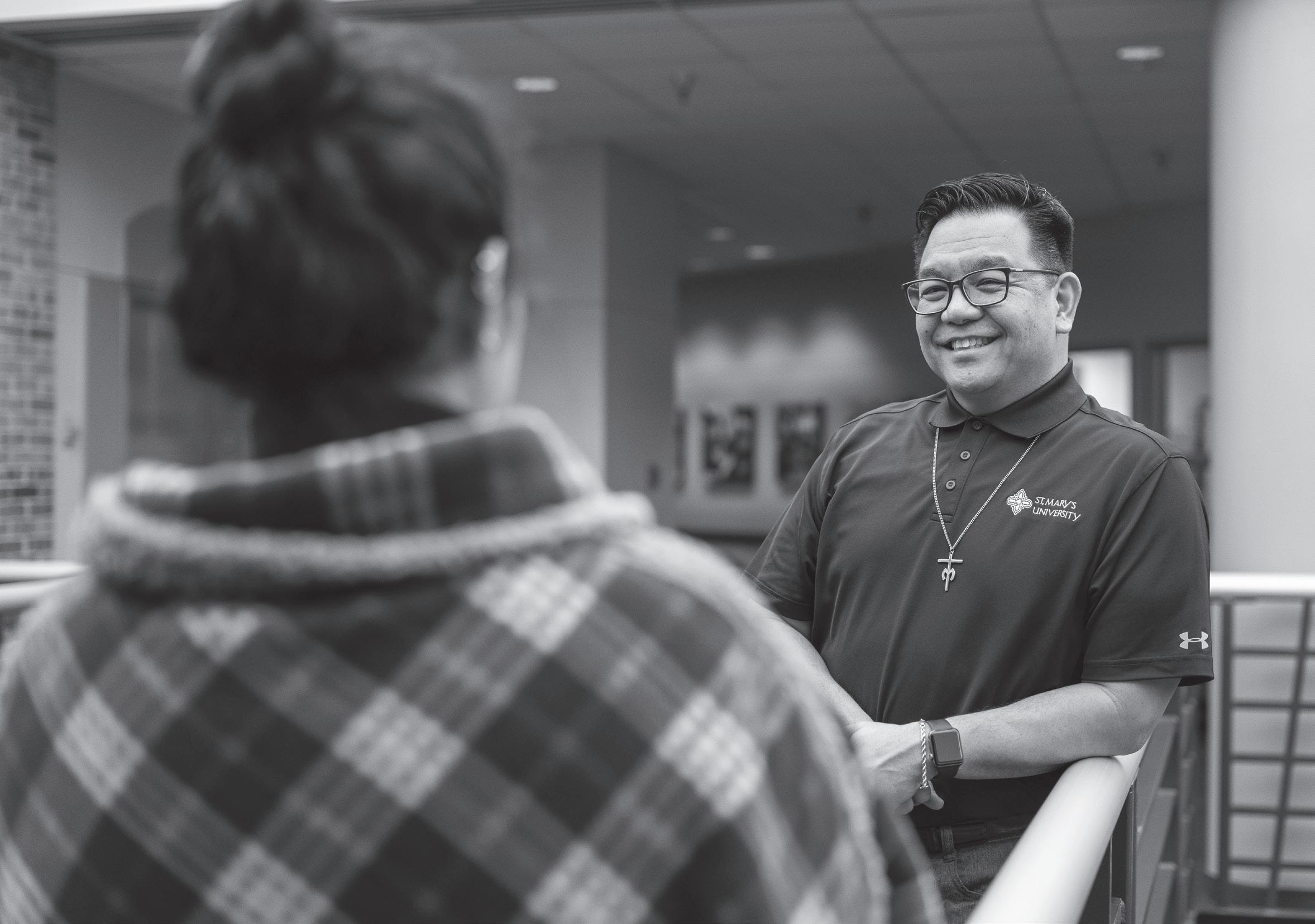
Listening isn’t where the journey starts; it is the path itself.
When young people feel heard, they open the doors to their hearts, making space for authentic relationships and spiritual growth. Pictured here is Brother Allen A. Pacquing, S.M. with a student at St. Mary’s University in San Antonio, Texas.
By Megan Bissell and Josh Packard
YOUNG PEOPLE TODAY CARRY a quiet but undeniable longing: they want to be heard. The world around them is loud—filled with screens demanding their attention, institutions that have let them down, and a culture moving too fast to notice their stories. They aren’t asking for quick fixes or perfect answers. They want someone to sit with them, take them seriously, and listen as they wrestle with doubts and share their dreams. This longing is not a challenge to ministry—it is the starting point. The church, particularly through the lens of synodality, has made clear that listening isn’t just part of its mission. It is the mission. Pope Francis describes synodality as a way of walking together in dialogue, with an openness to hear how the Holy Spirit speaks through each person. Listening isn’t just where the journey starts; it is the path itself, and this is particularly true for ministry with young people.
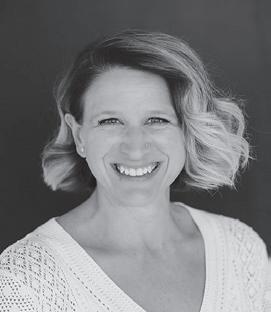
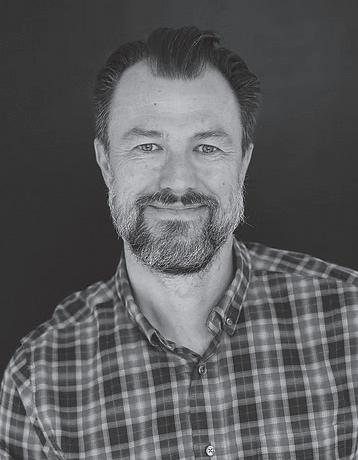
Megan Bissell is the co-founder and executive director of Future of Faith, as well as an applied sociologist and researcher.
Josh Packard is the co-founder of Future of Faith and an expert in the spiritual lives of American youth and religious trends in the United States.
This vision lies at the heart of Listen, Teach, Send (LTS), the United States Conference of Catholic Bishops’ new framework for youth and young adult ministry. The authors of LTS didn’t make listening the first step by accident—they made it the foundation. If we don’t listen, nothing else we do will matter. Before we teach, before we send, we have to stop and listen.
We have spent years exploring the transformative power of listening in ministry and founded Future of Faith to help dig even deeper into the connection between listening and faith formation. Our research reveals a single truth: listening is not just a step in the process— it is the process itself. It isn’t the way to gain trust to tell the truth. It is the way the truth is revealed to people in their own hearts.
Last year, we set out to try to understand the exact role that listening plays in a young person’s faith formation. In research that is central to our mission at Future of Faith, we began by surveying over 1,000 people using a nationally representative sample, and what we found was astonishing.
We’ll explore some of the findings from that study below, but pause here and consider these top-level effects of listening for young people 18-25:
• 85 percent agreed that when someone listens attentively, it makes them more likely to engage in meaningful conversations in the future.
• 77 percent agreed that when someone listens without judgment, they feel more connected.
• 70 percent said that when they feel listened to in a conversation about faith or spirituality, it makes them more likely to be open about those topics in the future.
• 72 percent indicated that being listened to helps them process doubt, disillusionment, and grief.
• 68 percent said being listened to deepens their faith.
When young people feel heard, they open the doors to their hearts, making space for authentic relationships and spiritual growth. It is not a stretch to conclude that listening changes everything.
Unfortunately, church and religious settings are not where young people feel listened to. When we asked
them to list their top places where they feel heard, only 26% of self-identified religious teenagers selected “faith community (e.g., church)” as among their top three.
This mismatch between the importance of listening and the frequency with which it occurs in religious settings means that Listen, Teach, Send couldn’t be more timely and vital for the future of the church and, more importantly, for the future of our young people.
During our time at the National Catholic Educational Association, Lincoln Snyder, former president and CEO, often reminded us, “You cannot catechize somebody who hasn’t been evangelized.” This is where we find ourselves with many young people today. The church has strong systems for catechesis, but many young people have not been introduced to the foundations of faith. They grow up in households embedded in a culture that is often disconnected from the transformative power of religion and belief. Many of them only know religion based on what they see on social media, movies, and television. They have never experienced the transformative love of Jesus. Listening is our starting point for everything. It is the way we evangelize—by meeting young people where they are and accompanying them in love.
Young adults are navigating a world where trust in traditional institutions—including religious ones—has significantly eroded, with most, including religion, at or near all-time lows. Surveys reveal that younger generations are far less likely than previous ones to trust established institutions and their leaders, citing reasons such as perceived hypocrisy, scandals, and a culture of institutional failures. The church is no exception to this trend, as many young people see it as disconnected from their lived experiences.
While institutional trust has declined, relational trust remains a powerful force. Young people may hesitate to trust the church as an institution, but they often place immense trust in individuals who take the time to know them personally. In our study, over 68% of young adults (18-25 years old) have high levels of trust in people they know personally and low levels of trust for large organizations (20%) and their leaders (31%). This shift from institutional authority to relational credibility presents a challenge for churches and other religious groups.
Many of the standard ways of doing ministry were developed on the assumption that people trusted reli-
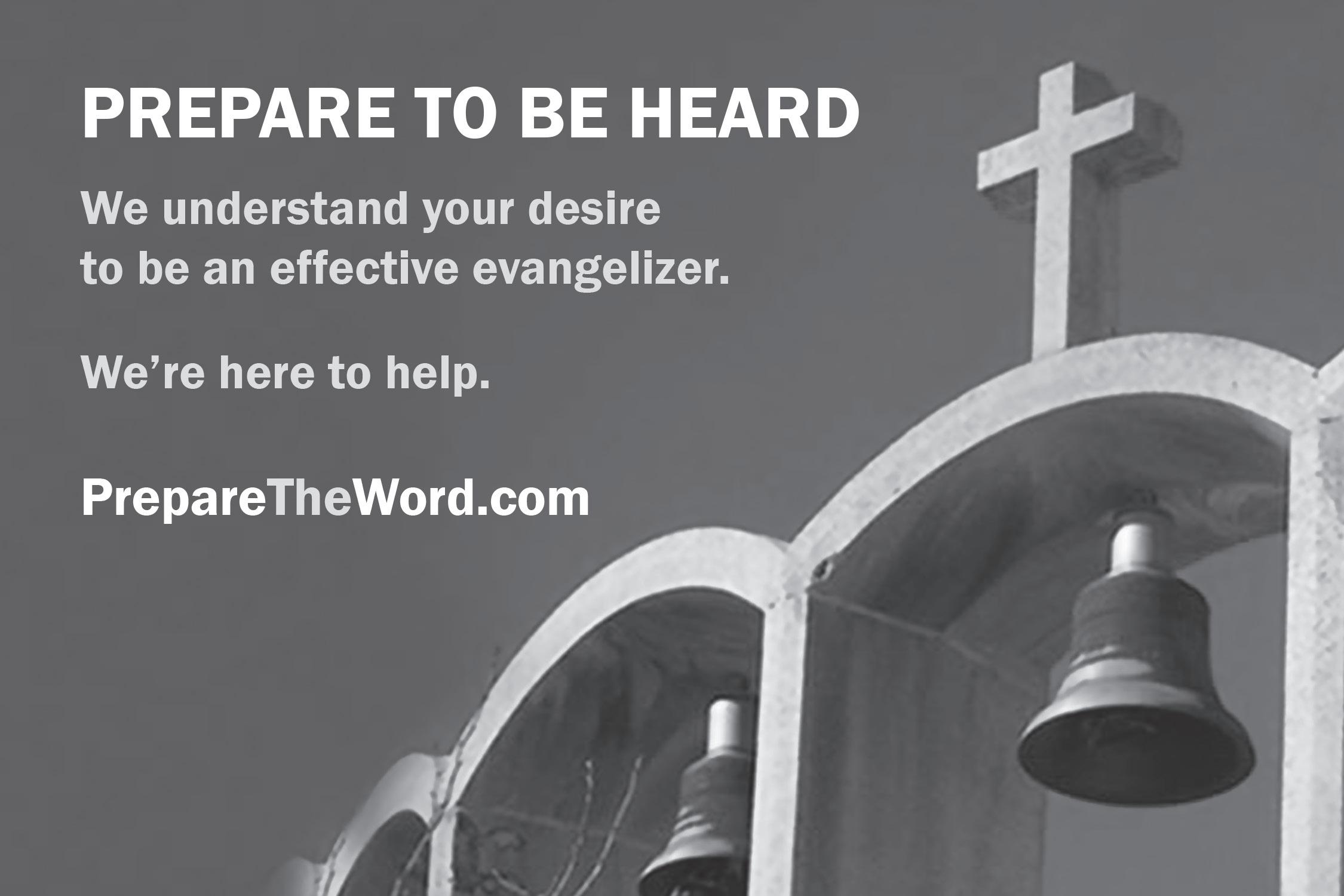
gious organizations and leaders. This was true as recently as the 1950s and 1960s, when institutional trust was high. In that environment, it made sense to lead with institutional markers such as titles, expertise, large campuses, and central authority.
In our modern, low-trust world, these approaches are not as effective. The more we lean into our institutional identities and markers, the less influence we gain among people skeptical of us and the institutions we work in. To regain trust with generations where it has been lost or was never present, we need to lean more into relational approaches rooted in the transformative power of listening.
For young people, trust does not come from titles or roles. It is earned in the quiet moments of being with another person, fully present and fully attentive. Today’s young adults trust relationships far more than institutions. They look for leaders who care about them as people, not projects.
This approach mirrors the ministry of Jesus, who did not demand trust based on his authority but earned it through personal encounters. From healing the blind man to dining with Zacchaeus, Jesus built trust by listening to people’s deepest needs and showing them that they mattered. Just as God listens to our prayers and accompanies us through joys and struggles, the social science
indicates that ministers in the modern era would do well to embody that same patience and presence. Listening becomes an act of participating in God’s work.
Listening might sound simple, but its effects are profound. Pope Francis describes listening as “an act of love,” a posture that transforms the listener and the one being heard. The theological roots of this approach run deep. In every young person, we see the Imago Dei—the image of God. Listening becomes a sacred act of recognizing their inherent dignity and worth. It’s no wonder, then, that listening resonates so strongly with today’s young people when so many “voices” in their lives try to convince them of their worthlessness daily.
Although we are social scientists at Future of Faith, we believe that starting from this fundamental theological position of Imago Dei is critical. If we begin with the assumption that every opportunity to interact with a young person is a chance to encounter the presence of the divine, then it makes it much easier to be interested when your kid talks to you about Minecraft for 20 minutes straight (okay, we may be speaking from personal experience here!). The theological posture of Imago Dei reminds us of how transformative it can be simply to sit
and listen to the divine in one another. This foundation is at the core of the synodal process. Synodality calls the church to rediscover its role as a community that listens. As articulated in the preparatory documents for the Synod on Synodality, “Listening is the first step, but it requires having an open mind and heart, without prejudice.” LTS echoes this, urging ministers to embrace listening as a transformative act of evangelization and accompaniment. This call for listening relies on the basic agreement that other people are worth listening to, and Imago Dei helps to remind us of this basic truth.
However, despite calls from religious leaders, helpful theological positions, and fancy surveys, true listening is not easy. At Future of Faith, we have come to understand that listening is a skill, not a passive act, and that when done correctly and with intention, it can be sacred work.
With this in mind, we have developed an approach to listening that is both rooted in a particular interaction and scalable to support entire ministries of listening. We call this Sacred Listening. Sacred Listening builds on three core principles: intentional presence, alignment with the speaker’s needs, and pattern recognition. These practices create a space where people feel safe enough to share, trust enough to explore, and are seen enough to believe in their own worth.
phone), and jumping to conclusions were all signals that most of our respondents said made them feel unheard. On the other hand, demonstrating empathy by listening to understand, withholding judgment, and asking follow-up questions all communicate to most people that you are listening and paying attention to them.
The third core element, pattern recognition, helps listeners discern recurring themes in conversations. These patterns often reveal not only individual concerns but also broader movements of the Holy Spirit within a person’s life. Sacred Listening is not just about the immediate encounter; it equips listeners to notice deeper spiritual currents. For example, patterns of doubt might reveal a young person wrestling with questions of identity, belonging, or purpose. It is sociological and sacred work to track your conversations and interactions with young people, look prayerfully and empirically for the patterns that emerge, and respond accordingly. This is also the key to making relational approaches to ministry sustainable for large groups of people in your care.
Sacred Listening requires putting aside the urge to fix or judge and simply being with the other person in their story.
Sacred Listening begins with intentional presence, the act of showing up fully for the person in front of you, free from distractions or preconceived solutions. In a culture saturated with noise and constant demands for attention, this kind of deep presence feels countercultural—almost radical. Yet, for a young person longing to be seen and understood, it is transformative. Sacred Listening requires putting aside the urge to fix or judge and simply being with the other person in their story.
The second principle, alignment, means that the person listening must orient themselves in a way that makes the speaker feel heard. Deep empathy is required to understand that what makes you feel heard might not be true for everyone across cultures and backgrounds. Our survey with young adults, however, points to some behaviors which are deeply resonant with young people and make them feel like you are listening...or not. Interrupting, appearing distracted (e.g., checking your
Pope Francis reinforces this approach in Evangelii Gaudium, where he writes, “The Church is called to be the house of the Father, with doors always wide open…Frequently, we act as arbiters of grace rather than its facilitators. But the church is not a tollhouse.” This openness, he insists, begins with listening. It invites dialogue and ensures that those who feel distant from the church are welcomed with love and understanding. Sacred Listening models this openness, creating spaces where every voice is honored as a reflection of the divine.
This shift from transaction to transformation mirrors the way Jesus engaged with those he encountered. Think of the Samaritan woman at the well, whose entire life was changed not because Jesus gave her quick solutions, but because he truly listened and spoke to her deepest thirst. Sacred Listening invites ministers to emulate this approach, entering into conversations with a posture of openness, curiosity, and reverence for the sacredness of the other person’s journey.
Finally, Sacred Listening is not only about hearing words but about creating a sanctuary for vulnerability. Young adults today live in a culture that often prizes performance and perfection over authenticity. Sacred Listening offers them a space where they can be honest about their doubts, grief, and hopes. When a young person shares, “I feel like I don’t belong,” or “I’m scared I’ll
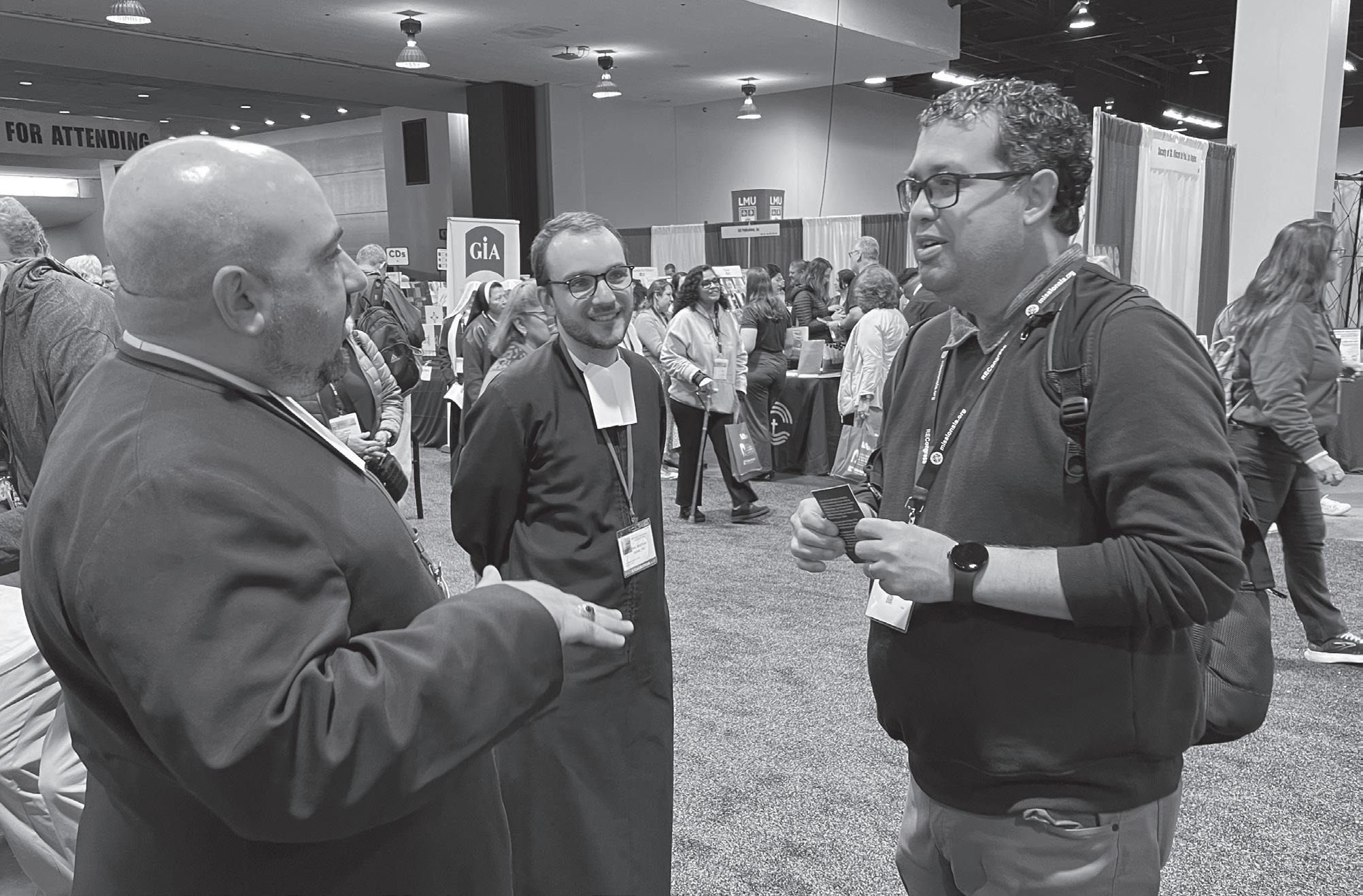
make the wrong choice,” the act of listening—without judgment or agenda—becomes a way of embodying God’s unconditional love. This love, reflected in the listener’s attentiveness, has the power to heal wounds and ignite faith. In other words, listening is not simply something you do to understand the other person better, though it is useful for that. Our research is uncovering what we have been hearing anecdotally for years, namely, that listening is, in and of itself, a way to deepen another’s faith and bring them closer to the divine. It is not a means to an end—it is the end itself for so many young people.
Listening can be uncomfortable. It asks ministers to set aside their agendas and step into the uncertainty of someone else’s story. Yet it is precisely this discomfort that creates space for transformation.
Our survey revealed that young people often feel silenced by authority figures who dominate conversations, offer unsolicited advice or judgment, or constantly correct. These barriers are opportunities for ministers to reimagine their role—not as lecturers but as companions. As true accompanists. One of the biggest challenges in our work with young people is to sit and listen even when a young person reveals alarming things about their behavior or beliefs. The inclination is to step in and correct, but if the trust is not earned through listening, then
the correction is felt as judgment and as an indication that you are not willing to get to know them and their realities.
Our research shows that if you lead by listening, you will earn the right to be heard. Alexandria, a 24-year-old we interviewed, said, “If I know that someone listens to me, then at the very least, I can reciprocate that.”
Even with a strong relationship with Jesus, a 20-yearold might still mistrust institutions. Invite them to shape, not just join. Affirm their faith, listen with genuine curiosity, and share leadership. Transparency builds trust, revealing how God works through imperfect structures. Make space for real stories, consistent follow-through, and continued presence. Skepticism of institutions does not necessarily indicate a disinclination toward service.
Pope Francis reminds us that true accompaniment doesn’t mean sitting and listening without direction or condoning every thought or behavior of another person. Rather, a person must be accompanied into a relationship with Jesus. The question of how long that takes will be different for every person and rely much more on the Holy Spirit than on social science. Sacred Listening takes the simple act of being present and elevates it into a sacred encounter. This is the promise of Listen, Teach, Send. It is an invitation to step into ministry with open ears and open hearts, trusting that the God who listens to us will work through us. It is a call to accompany young people on their journeys, not as fixers, but as companions who listen with love and help guide the way. n
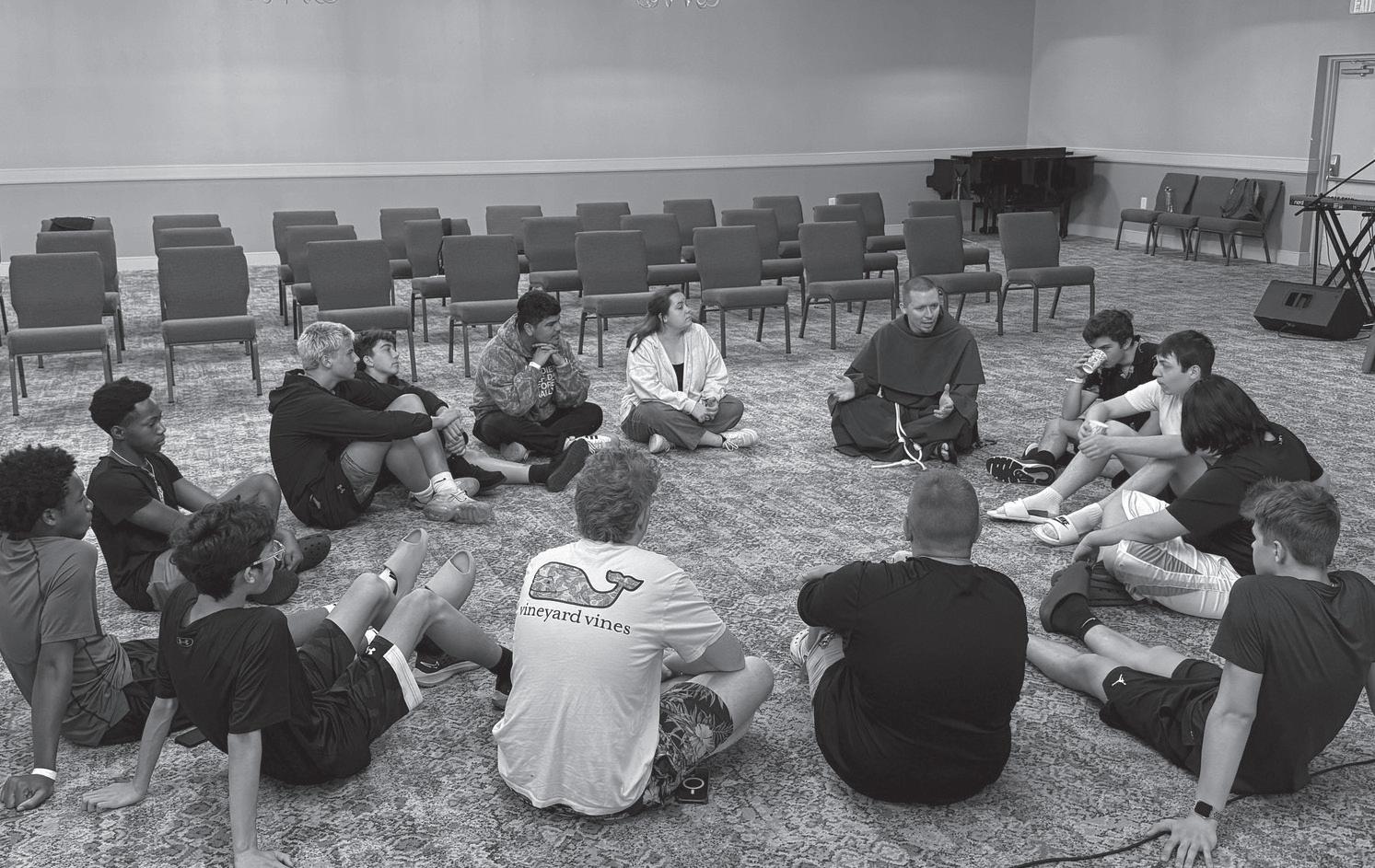
By Paul E. Jarzembowski and Maria R. Parker
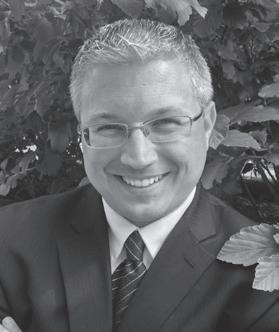
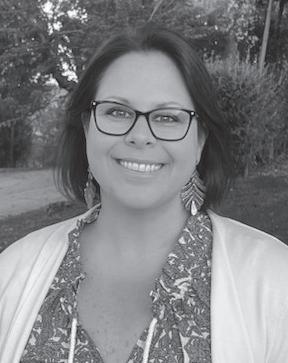
Paul E. Jarzembowski is the associate director for the laity at the United States Conference of Catholic Bishops and a Bernardin Scholar in Practical Theology.
Maria R. Parker is the assistant director for the laity at the United States Conference of Catholic Bishops. She is dedicated to helping youth ministers.
Since vocation ministers work closely with youth and young adults, it helps them to understand the direction that American bishops are encouraging in ministry with young people. In 2024, the bishops released the 48-page pastoral document, “Listen, Teach, Send: A National Pastoral Framework for Ministries with Youth and with Young Adults.” Two of those involved in shaping the framework offer an overview of its approach to youth and young adult ministry.
Several realities spurred the United States Conference of Catholic Bishops (USCCB) to craft a new framework for youth and young adult ministry. Among them were the declining number of young people considering consecrated religious life and the sacraments of holy orders and marriage. The increasing rates of institutional disaffiliation and a mental health crisis affecting millions of youth and young adults also fueled the bishops’ initial discernment in this area. The USCCB felt the time had come to respond to these realities
in a proactive and pastoral way. The process leading to the eventual passage of “Listen, Teach, Send” (LTS) was couched in intentional listening to women and men who have a heart for youth and young adults (including vocation ministers) and young people themselves. These groups communicated a mixture of frustration and struggle fused with joy and hope (not unlike the experience of the disciples on the way to Emmaus). In response to what they heard, the U.S. bishops crafted a framework “as a summons to local faith communities across the country to renew their efforts.”
The audience for LTS is wider than previous pastoral statements from the bishops around youth, collegians, and young adults. Lay people, consecrated religious, and ordained pastoral ministers in Catholic parishes, college campuses, dioceses/eparchies, and organizations are certainly intended readers, but so are parents and families of young people, peer ministers within the youth or young adult demographic, and any Catholic leader whose ministry or work intersects with young people. The bishops were mindful that this should include vocation directors and ministers, whose efforts regularly involve conversations, pastoral care, and accompaniment of those between 13 and 39.
This is the opportunity the bishops put before all who read and reflect on the framework: carefully and prayerfully consider how you listen, teach, and send forth each youth or young adult the Lord places before you at any given moment.
So that this framework is not a theoretical ideal or the property of a select few professional ministers, we begin this summons in the home and with our loved ones. We are not imagining an abstract concept, group, or data demographic; rather, we have in mind the young women and men we know or interact with on a regular basis. Each of them has a unique name, face, and identity: beloved by God and integral to the mission of the Catholic Church.
As you read this article, we encourage you to pause for a few moments to reflect on the name, face, or identity of a youth or young adult whom you know or encountered recently. Start there and dive in.
When we listen to another, do we receive their words in our ears, or do we stop, pause in reflective silence, and strive to understand the story or perspective that person wants to offer us? This is a key challenge that the bishops offer us: to approach all youth and young adults with a
listening heart. The first step in engaging a young person is authentic listening. Anticipating concerns about the overuse of the word “listening” in recent years, the bishops broke open the experience in four intersecting ways: encounter, presence, understanding, and healing.
For vocation ministers, the encounter and full presence can occur the instant an individual steps into your community, office, or activity. Even more so, recognizing that many youth and young adults are not walking in our direction, listening exercises also mean going out to them and taking note of their lived realities. The U.S. bishops echoed Pope Francis in noticing that a growing number of young people are struggling, suffering, and navigating difficulties. How, then, can we more intentionally encounter young people “with loving and generous pastoral concern” before we ever mention work with vocations? How can we stop and listen to them without interjecting, fixing, or filling the silence? Many times, young people just want to be heard. When a youth or young adult knows you are simply there because you care, it can help establish trust that is foundational for further formation and engagement in the faith.
In LTS, the bishops challenge us to still our incessant need to react or respond immediately. This can allow for a better understanding of the young person in our midst–across the generational, cultural, or experiential lines that may exist. Such acts allow us to witness the uniqueness of each person by directing our focus on the individual before us. We can appreciate his or her story because it is indicative of the human story, which we also share.
Finally, knowing someone’s story can (and often does) reveal deeper pains or hidden wounds, which can hinder a relationship with Christ or the community. The vocational journey of a young woman or man could be rooted in a sensitive element of her or his story. If it is not addressed or if there is no movement toward healing brokenness, a young person’s wounds could fester and grow, potentially eclipsing a mature and fruitful relationship with Christ and the People of God. A vocation minister has a prime opportunity to accompany youth or young adults in their midst through grief or anguish; not to fix or resolve the pain, but to become a trusted and concerned companion. How can you be that person? How can your community’s charism or spirituality offer hope for a youth or young adult who may be struggling, isolated, or uncertain?
In all this, practice patience and gentleness. The listening process takes time and effort, as trust needs to be built up slowly. However, it can yield a strong and fruit-
ful bond when the young person recognizes he or she is listened to and cared for as a son or daughter of God.
How many of us recall with fondness a teacher or mentor in the faith who saw us as we were and welcomed us? We reflect kindly on many teachers and mentors we have had in the faith throughout the years who saw us and welcomed us into a deeper relationship with Christ, modeling virtue and joy. Their examples of virtue, and especially their patience with us, as we grew in deeper understanding of what it means to be a disciple of Christ, formed a foundation for our faith to blossom. These teachers and mentors guided us towards a stronger relationship with Christ by sharing the truth, beauty, and goodness of the faith and inviting us to ponder the meaning of these things for our own lives and our relationships with Christ and others.
As vocation directors, you are spending much time investing in men and women who are discerning the call of the Lord in their lives. The relational aspects of your ministry are rooted in the same relational aspects of Christ’s ministry. Your accompaniment of these young men and women serves as an intentional teaching dialogue on the ways that God is working in their lives. You have been invited to patiently walk alongside others and share the truth, beauty, and goodness of Christ and the Catholic faith with them. The question of, “How am I inviting people to enter more deeply into a personal relationship with Christ to hear His calling for their lives?” can at times feel urgent. However, in looking to the example of Christ from Scripture, you can be encouraged that He is also there accompanying you as you journey with others.
nities, fellow priests, seminarians, sisters, or brothers in formation about how you live out community life and fraternal love and share the kerygma. Consider spending time in prayer and conversation, asking the following questions. Does our community live in such a way that the love of Christ is known and reflected to one another? Would young people be attracted to our community life? What liturgical and sacramental celebrations are part of our community life? How do we invite young people to participate in our family of faith as priests, sisters, brothers, consecrated men and women, etc.? These are important areas to reflect on with others so that your accompaniment of young people discerning God’s will can find a home that engages their gifts and talents in service to the larger church.
Is your heart burning to serve Christ in your ministry as a vocation director?
Is your heart burning to serve Christ in your ministry as a vocation director? What a joy and a gift it is to share the love of Christ with others in your daily work. You have been called to this ministry at this time for a particular purpose in service to the Lord. How do you share the Good News of Christ in your work as vocation directors with young people? How do you witness to Christ in your daily conversations and routines? We can become so focused on all the things that need to be done in our ministries that we don’t spend time reflecting on how we live as we do these things. Are young people attracted to the joy that is shared in your ministry?
The bishops provide insights and encouragement for this teaching role of accompanying others in the faith, and specifically, in your work as vocation directors. In your ministries, there is a beautiful opportunity to provide formation that anchors young people discerning consecrated and religious life in the teachings of the church and to see these young people as collaborators in this work. In LTS, the bishops remind us that the development of the kerygma and a growing atmosphere of community life and fraternal love are foundations for this work to flourish. It is beneficial to have strategic conversations with members of your religious commu-
The bishops provide guidance on how to send out the young people we accompany on mission to the larger world. They remind us that we do not need to keep young people in long training programs for many years before we encourage them to proclaim the love of God. We can overcomplicate daily tasks and unintentionally add complexity to the processes of discernment and formation.
Take a moment to reflect on the message from the bishops and how it is manifested in your ministry and community life. The bishops specifically mention this, saying, “Pastoral leaders, vocation ministers, and families can invite young people to consider all the ways God may be calling them in life.”
In doing so, you can be a witness for young people to the dynamic joy of being sent on mission. Consider
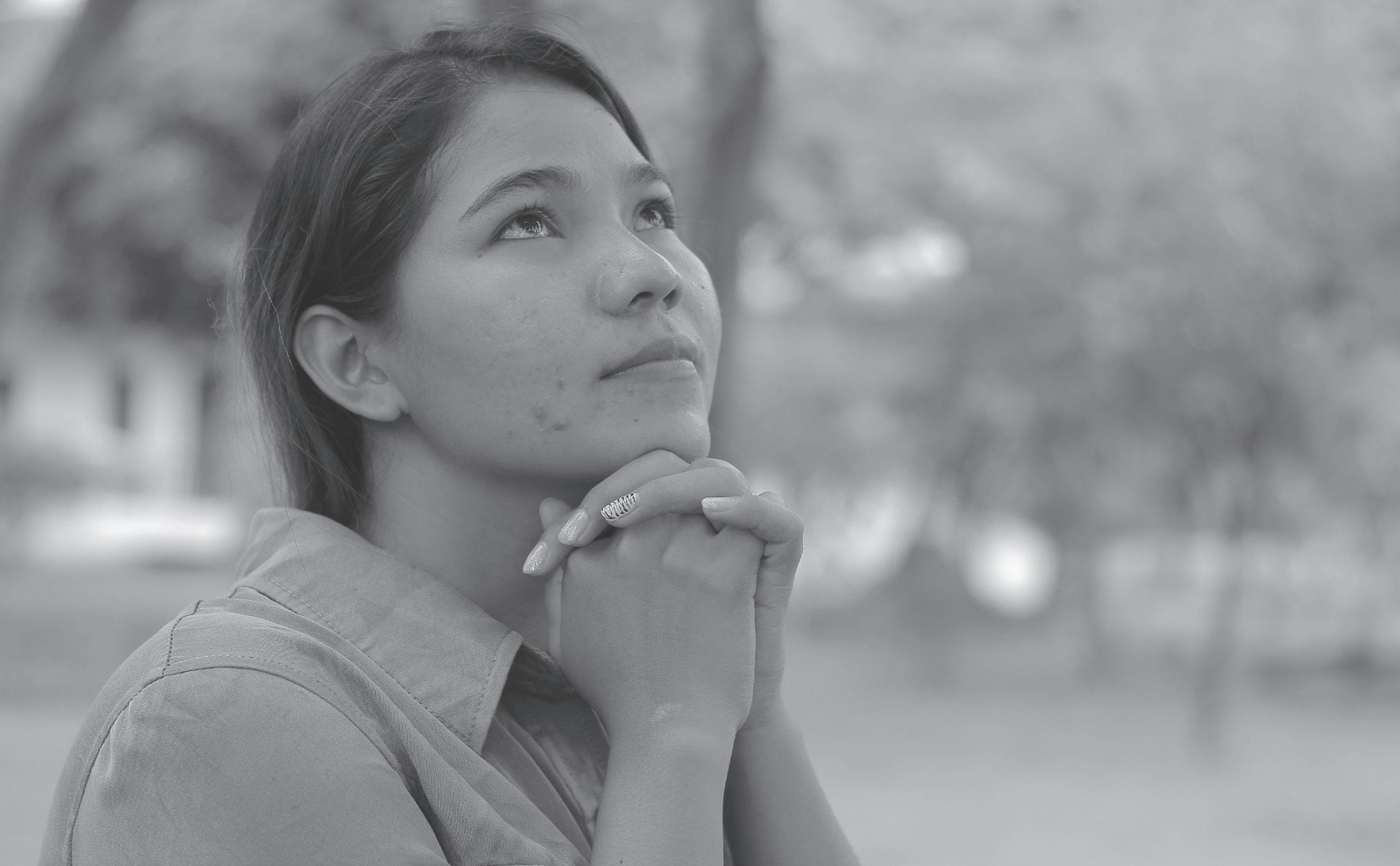
spending time in prayer and conversation, asking the following questions. How do we encourage the young people who are discerning God’s will for their lives to have an enthusiastic spirit? How do we serve the Lord with charity and justice in our particular state of life? How do we encourage the men and women who are discerning God’s will to take the lead in serving our local communities? What opportunities do we provide for young people to discern serving and leading in the church as a consecrated or religious man or woman? Do we share the stories of our founders, foundresses, and saints from our religious communities and dioceses as beautiful witnesses for our young people? How do we witness through our partnerships with various ministries with young people?
§§§§
Vocation directors are invaluable collaborators with families and the church’s ministries with young people. As the bishops noted, those who accompany youth and young adults are most effective when they work in collaboration with the entire community. The church in this way works together across an interconnected network of ministerial fields for the good of the mission entrusted to
us by Christ. As such, the church moves forward in these ministries as a “community on a journey.”
Like so many others in this community, you are a tremendous gift to all members of the Body of Christ, especially young people who are discerning God’s call. Thank you for your faithfulness as vocation ministers accompanying youth, young adults, and their families. To continue the journey ahead, we encourage you to build in time for your own reflection, conversation, and reevaluation to prayerfully engage with youth and young adults. You are living out a beautiful calling in service to the Lord, modeling for young people what it means to be sent out enthusiastically on a holy mission by pointing to Christ, who listens, teaches, and sends each of us with a love beyond compare. n
LISTEN, TEACH, SEND
For a PDF (English and Spanish) of Listen, Teach, Send: A National Pastoral Framework for Ministries with Youth and Young Adults, as well as supplemental resources and media tools, go to: tinyurl.com/ypw6t6zu
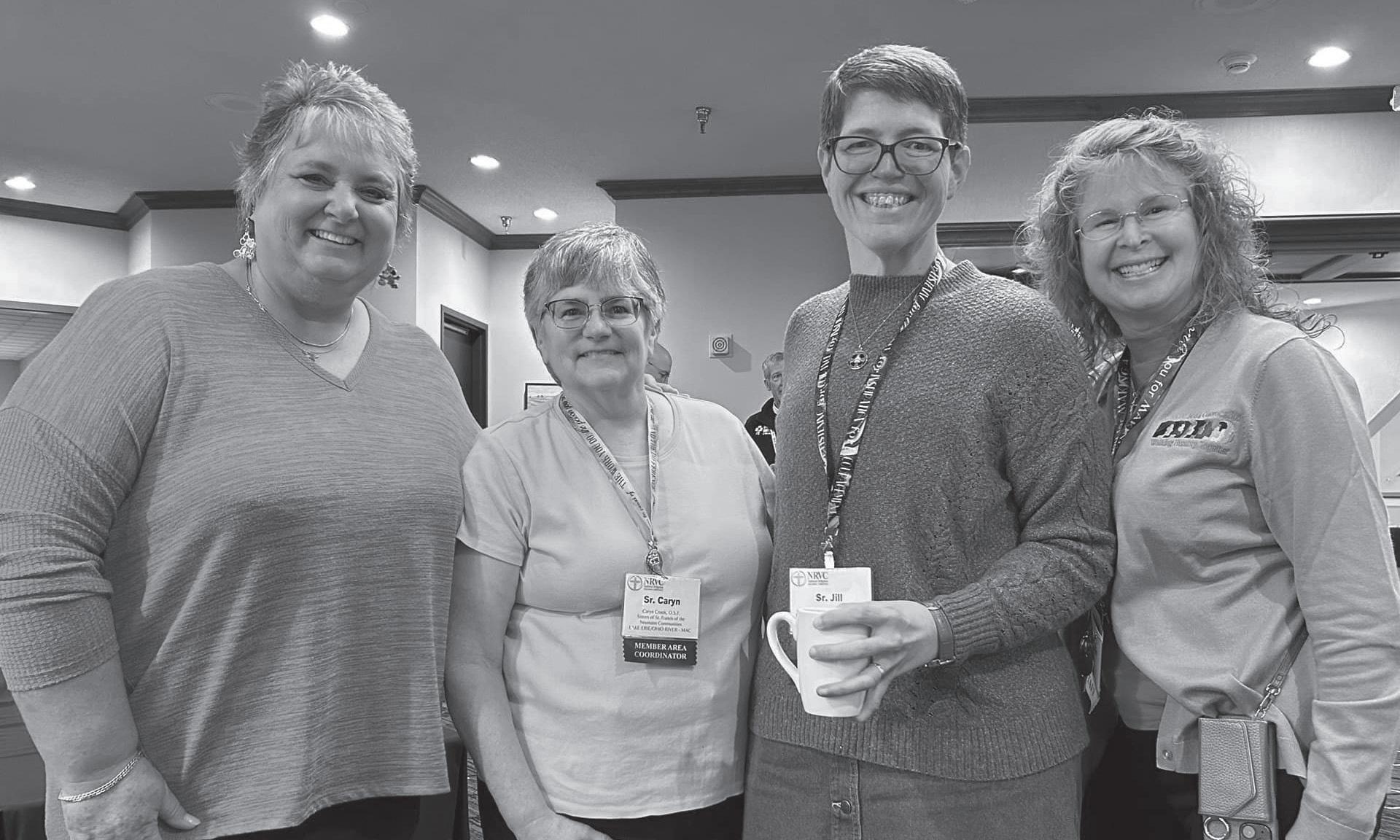
If you look around at the people in your orbit and across your networks, there may be someone who is just one invitation away from becoming a great asset to your vocation ministry.
By Dan Masterton
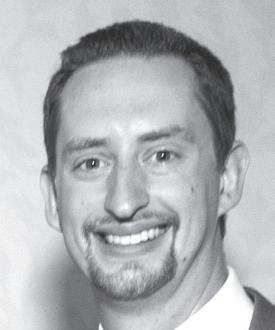
Dan Masterton is the communications director for the Viatorians (Clerics of St. Viator). He met them as a St. Viator High School student and is now a Viatorian associate. Masterton has published two ministry-related books and several articles. He lives in Bolingbrook, Illinois, with his wife and three children. Find his writing and contact him at linktr. ee/danmasterton.
In the modern Catholic Church, there are more and more examples of roles traditionally held only by priests or religious that are now being restructured or staffed differently. Catholic high schools, perennially run by a priest or religious as president or principal, are turning to a lay administrator. Diocesan offices that once depended on priests and religious to direct various departments are now appointing laypeople to director roles within the bishop’s staff. Vocation ministry offices, once the purview of only professed religious, are likewise incorporating more lay staff into the work. The National Religious Vocation Conference currently counts 71 laypeople on its membership rolls.
Chris Swain, director of the Office of Lasallian Vocation Ministry, remembers few lay folks involved in vocation ministry when he started 10 years ago, but now he works with many more. “I think communities are recognizing the value of having collaborators to partner with who know the charism of the congregation and bring specific gifts and talents to share,” Swain says.
As this structure becomes more common in religious vocation ministry offices, let’s take a closer look at who might fit, how and why it works, and why it might be a fit for more communities that have yet to give it a try.
Foundationally, laypeople bring a different perspective from outside religious life. For Renee Dee, national vocation director for the Missionaries of La Salette, the basic daily life of a lay staff member is a helpful addition. “Laypeople are out in the workforce, around the water cooler, in the grocery store, in the church pews. Our role as parishioners and as laypeople is to spread the word. Vocation ministry is really just a layer upon what we ought to be living out anyway,” Dee says, noting that her community widely utilizes lay committees in their parishes already.
Additionally, while married people did not discern into religious life or the priesthood, many considered it earlier in life and, even in choosing marriage, became serious practitioners of faithful discernment. Ernie Garrido, vocations recruiter for the Paulist Fathers, likes how his background adds to the range of his team. “I am married after having seriously discerned religious life and the priesthood. I think my vocation complements our ministry and lets discerners and their families know that the journey is about being open to the call of the Holy Spirit,” Garrido says.
Swain adds that such collaboration between professed and laypeople reflects the breadth of vocation in the church and Christ’s baptismal call. “It’s a blessing to bring all I am as a married person, a parent, and an adult to this work,” Swain says. “We need to see the wider landscape of the call to holiness and the variety of ways we’re called to live this out. That’s a great point of entry for all of us to enter into this work and share in it together.”
For some communities, the transition toward collaborating with laity in vocation ministry can happen quite naturally. “Our Lasallian charism emphasizes shared mission between vowed brothers and partners. We want to respond creatively and faithfully in ministry, and a shared approach in vocation ministry fits,” Swain says. “This frees the brothers directing vocations to accompany men in discernment in a more present and active way, and it empowers me to support them in collaborative, communication centered efforts.”
Dee says that in her office, it was mostly just getting past the “new job” curve. “When I first started, some older priests were taken aback, but sharing what I do in the office and building the relationships and rapport has made it a non-issue,” Dee says. “I was invited to community meals, and I would go about once a week. I would stand there and pray with the group. Then, one day, they slid the card to me and invited me to lead for the week.”
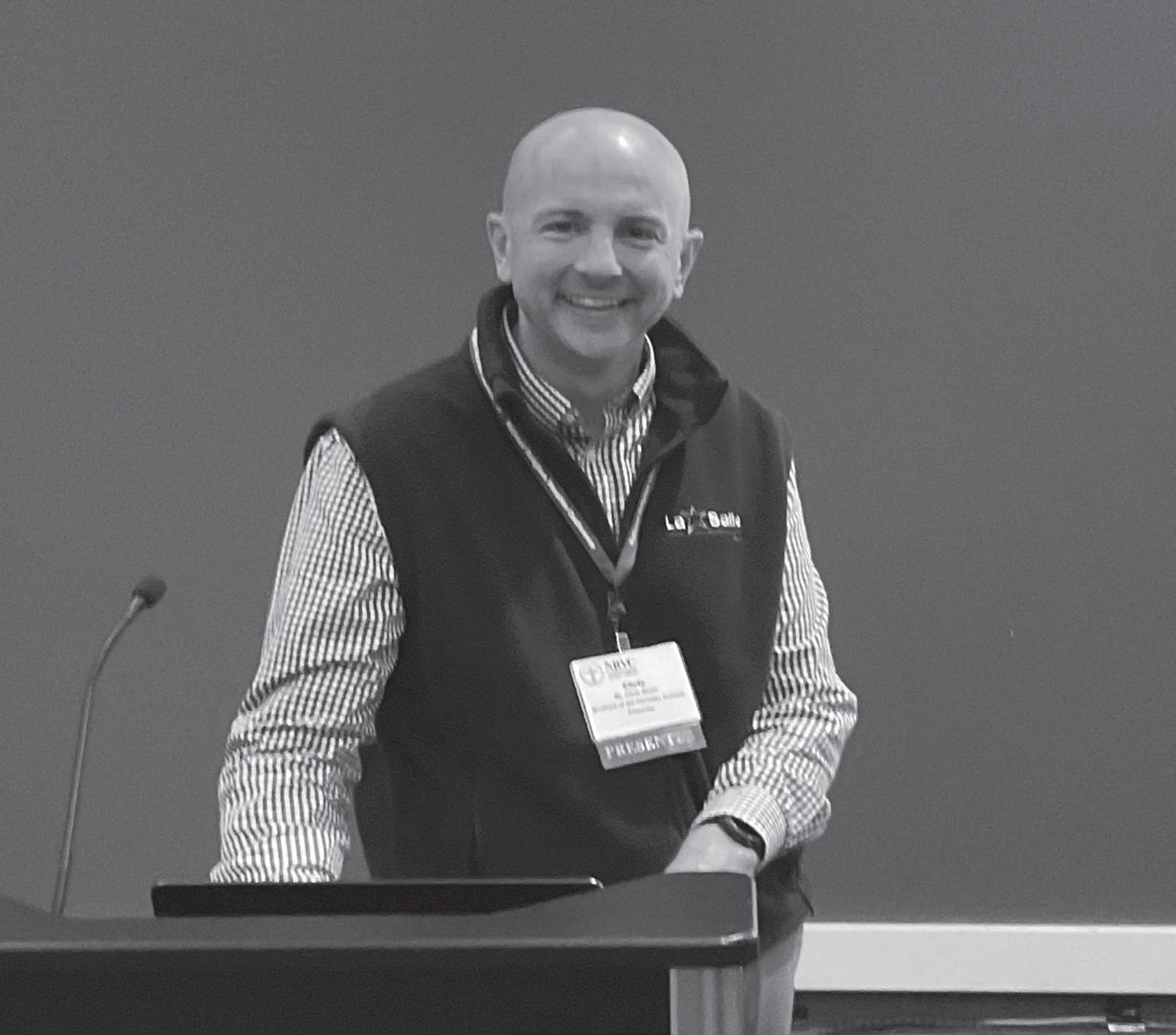
The shared kinship that laity finds with a religious community, whether through lay association, belonging to the communities within a congregation’s sponsored ministries, or just from social friendships, can also lead to a smooth transition. Garrido drew on his long connection to hit the ground running. “Though I am new to vocations ministry, I have known the Paulist Fathers and their charism for over 25 years,” Garrido says. “It helped me feel confident about my ability to aid their vocations efforts because I consider the Paulists my spiritual mentors.”
Practically speaking, many vocation directors serve multiple roles for their congregation and/or the ministries the community sponsors. If they have limited time or divided attention, they likely need help that may not come from brothers or sisters within their congregation who also face similar constraints and demands. While a team approach among religious is a common way to share the responsibility of vocation ministry, hiring lay staff can subdivide responsibilities to allow each vocation minister to be most effective.
Typically, intentional accompaniment with a discerner is left mostly or completely to professed religious, particularly those trained by NRVC professional development workshops. Their experience in discernment, formation, and vowed living is invaluable and essential to sound discernment of religious life. However, many of the components preceding serious discernment can be performed at least partially by lay staff members. Among his many duties as a lay staffer, Swain supports the vo-
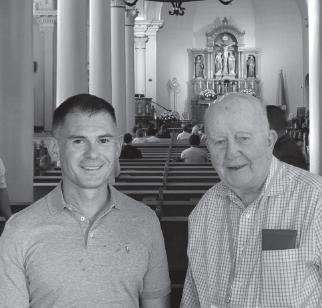
cation directors of his three provinces with communications and collaboration while sustaining the website and organizing conference exhibitions. Dee coordinates inquiries and funnels them to her regional vocation directors while maintaining outreach to the missionaries’ parish vocation teams. Garrido works on the website, social media, and multimedia content to constantly gather quality photos and videos and design compelling content. Then, within and beyond these responsibilities each of these ministers takes on, they find opportunities to complement the work of their professed members and use their unique gifts.
“My role is to support their ministry, primarily in communication and collaboration. I can help ensure visibility to an external audience who may not yet know the community, the brother vocation, or the Lasallian brother vocation,” Swain says, emphasizing how he may help fill gaps or widen the reach of his community.
Dee enjoys the chance to offer a lay perspective to inquirers, which frees her to talk up the great work of her colleagues a bit more than they may do themselves. “I may be the first point of contact for a gentleman wishing to learn more until I connect him to a priest. The positive is that they get a perspective from a lay person that balances the clergy perspective,” Dee says. “At times, priests and brothers may be uncomfortable, feeling like they are bragging. They are quite humble. I can say what I see of them in community, collegiality, and support of one another.”
Garrido can lean on his professional experience as well as his language skills. “With a communications background and being fluent in Spanish, I can often be a big help when trying to communicate with family members of discerners. This allows our vocation director to focus on his priestly duties within the role and be available for spiritual counseling with discerners,” Garrido says.
As a professed vocation director acclimates to working with lay staff, it may take some trial and error to work out the ideal collaboration. Sometimes, professed members may desire even more help than they initially imagined. Nonetheless, some areas of accompanying discerners must remain confidential, known only to the vocation director and the congregation’s leadership.
Laypeople and professed religious must collaborate with due respect to their institute’s regulations and vocation ministry ethics, such as those in NRVC’s ethics code and its ethics workshops. For example, the vocation director may ask a lay staff member for help with inquiries. After the lay person sets up an inquiry database and manages the initial responses competently, the director asks for further assistance in designing, implementing, and tracking ongoing correspondence.
On the other hand, maybe the vocation director could ask a lay staff member to arrange a psychological evaluation. Perhaps the lay person arranges the appointment, confirms the details with the evaluator and the applicant, and completes payment on behalf of the congregation for the service after it’s rendered. However, the final report is handled only by the vocation director, who corresponds directly with the evaluator to ensure confidentiality within the congregation. It might make sense for a lay staff member to help create a template or documentation format for application materials, the vocation director’s work with an applicant, and an eventual presentation of a candidate to leadership. However, the materials and information in an application must ethically remain within the congregation’s leadership and its appointed agents, particularly the vocation director.
For religious communities with third orders or lay membership, it makes sense to consider prospective hires from that group. For example, the Paulists have women and men associates with strong connections to the community who desire to align with the spirituality and
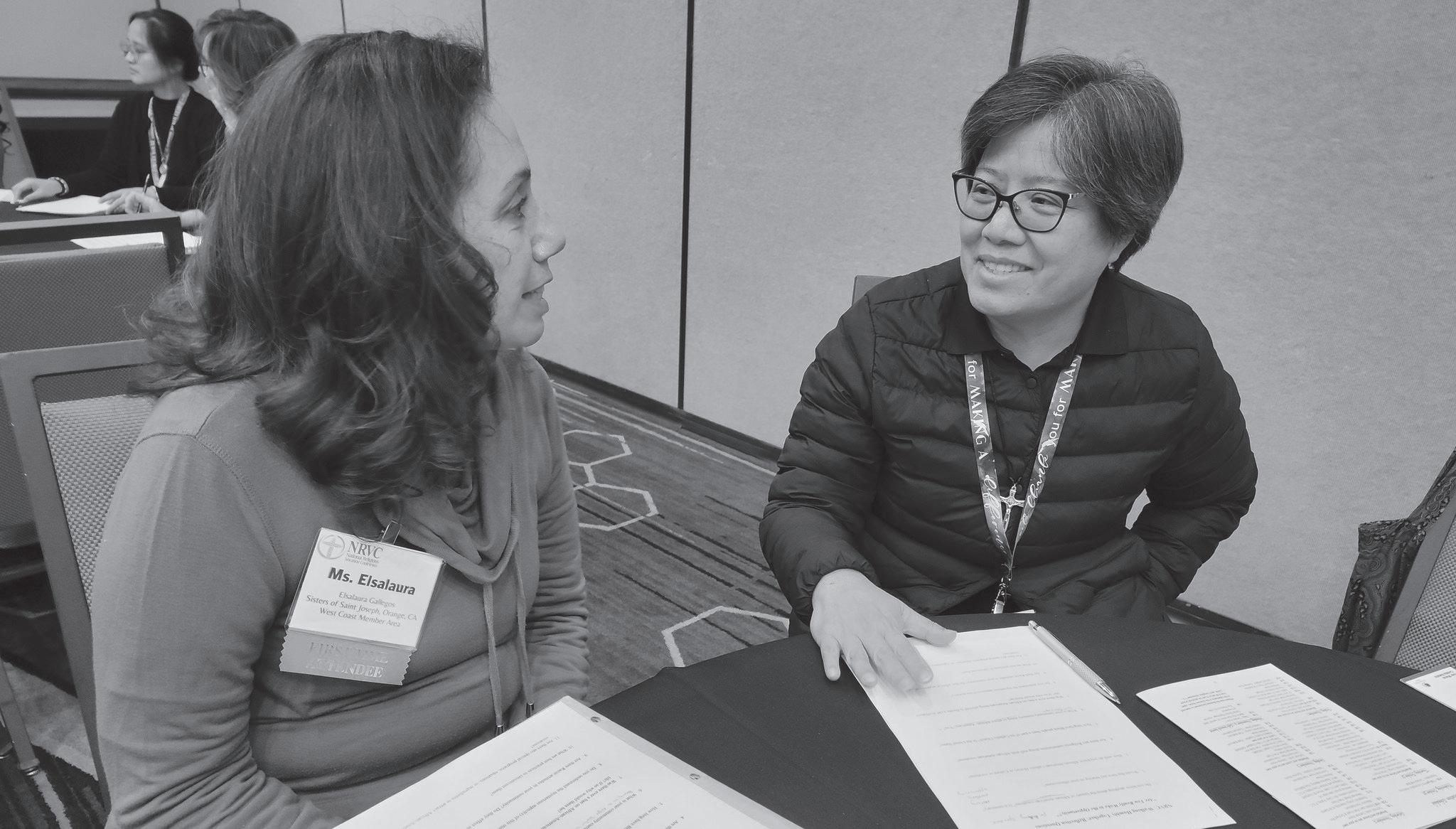
charism, and the La Salettes have associates who take an annual vow and try to live the charism in their daily lives.
Moreover, religious women and men with strong pastoral inclinations often identify laypeople in their professional and personal networks who have deep spirituality, pastoral skills, or social strengths. They may be good candidates, especially if they possess the clerical, administrative, or communications skills that a professed person needs on a vocation team.
It also makes sense to check with alumni programs in a community’s sponsored schools, put out feelers to pastoral councils and parish leadership teams, or turn to familiar young adults seeking deeper belonging in a mission-driven job. Laypeople who know the community from volunteering or working in a sponsored ministry are another group worth connecting with when seeking vocation personnel.
As a lay staff member, Dee acknowledges that lay and ordained people are always trying to figure out how to balance their vocations and collaborate best. “There is definitely respect, not priests’ acting top-down, but laypeople wanting to run things by the priests in charge. Our provincial superior has been so open about including and incorporating laypeople, and the priests have
been a part of that very inclusively,” Dee says. “Pope Francis taught that [the] laity, by our baptismal promises, are called to take the message out into the world. That’s exactly what we’re trying to do.”
Tapping into the faith and mission-driven heart of well-suited laypeople could bring great energy to a vocation office. “Since the Paulists accompanied me and enriched my own spiritual journey, I am genuinely honored when I can produce content, communicate with others, or represent the Paulists at an event or conference,” Garrido says. “My sincere hope is that my work reflects my joy for my Catholic faith through the Paulist charism, and that, in turn, will encourage young men to discern religious life and the priesthood with the Paulist Fathers.”
Swain encourages communal discernment as the best way forward. “The invitation to communities is to consider present needs and what the fit for lay contributions may be. You can always look at peer communities and identify things you’d like to do in ministry, in outreach, or on websites as a way of brainstorming. However, more realistically, you can ask prayerfully, ‘What is the next faithful step to acknowledge what you have in the community and what you can invite a new partner to contribute that isn’t already present?’”
As communities discern internally, sound external
discernment is needed. Communities need to think about their candidate profile, the audiences for their outreach, and the groups they want to reach–and let this inform potential new hires. “I encourage communities to embrace how a lay person’s perspective can work in conjunction with the members of the community. The more [roles] we can give to people who come with a variety and diversity of backgrounds, the better prepared we can be to meet [inquirers] where they are,” Dee says. As vocation ministers know, so much of the work is about invitation. At root, vocation ministers strive to help potential discerners realize that religious life is a possibility for them. Their presentation must be credible, which surely comes in part from their passion, authenticity, and being prepared with compelling promotional materials, a joyful presence both in person and online, and a thoughtful presentation of their religious community.
As vocation offices strive for maximally effective ministry, prioritizing invitation and discernment in the hiring process can be helpful. For laypeople to become a
Lay people who work closely with vocation ministers may benefit tremendously from the following workshops:
• Orientation Program for New Vocation Directors
• Ethics in Vocation Ministry
• Behavioral Assessment 1 and 2
For more information, please visit nrvc.net.
helpful, beneficial part of a vocation office, the religious community must extend a credible, authentic invitation to laypeople, many of whom probably have never imagined themselves working for a religious community in vocation ministry.
“Often, there are many laypeople with wonderfully relevant lived experience with the community,” Swain says. “If you look around at the people in your orbit and across your networks, there may be someone who is just one invitation away from becoming a great asset to your vocation ministry.” n
n 2019, I needed to transition from part-time work in high school campus ministry to something more flexible, even hybrid, to let me care for my daughter and a baby on the way. Meanwhile, my longtime friend, then-Brother John Eustice, C.S.V. was serving as the director of vocation ministry for the Viatorians while working “part-time” as vice president at the community’s high school. He was looking for help. The Viatorian leadership was amenable to hiring me, if a bit skeptical, needing to see the division of labor and how it would work. They hired me part-time that summer.
John’s greatest need early on was inquiry management, so we worked together to set up a shared file space, build a tracking spreadsheet, and compose flexible form letters to fit a timeline of correspondence I could manage. When inquirers engaged with us, I connected them directly to John, who took over
the accompaniment. From there, we turned our attention to establishing an Instagram account, and I became the administrator, working off shared ideas and community input to design and post content.
Next, I outlined the discernment aid guidebooks we had envisioned, drafting many articles myself for John’s review while also commissioning articles from him and other community members. We printed them as formal paperbacks that we often hand out. Eventually, we even launched a podcast, contracting with a school alumnus whom I helped produce the show, and later, I took over the whole thing.
Early on, John and I focused diligently on posting my hours of availability to the community, and we reported any deviations to our provincial and his assistant to be transparent and accountable. As our work evolved and grew, we co-wrote detailed reports on our work for the
monthly meetings of the Provincial Council. We often heard that they were more than necessary, but we always erred on the side of over-informing them and letting them file it away. It helped that I had known the Viatorians for 20 years, had kept in touch, and had become adult friends with many of them. Yet, it also helped that I desired to be more involved, brought a background in theology and experience in ministry, and entered discernment and formation to become a Viatorian as a lay associate.
For us, the fit was quite natural, as the Viatorian founder envisioned a society of consecrated and laypeople, where lay assistants supported overstretched parish pastors as school teachers, sacristans, and collaborators, a vision that was constrained initially but realized in the late 20th century. Interestingly, the professed-lay partnerships we practice today have always been a part of the Viatorian charism and community.
—Dan Masterton
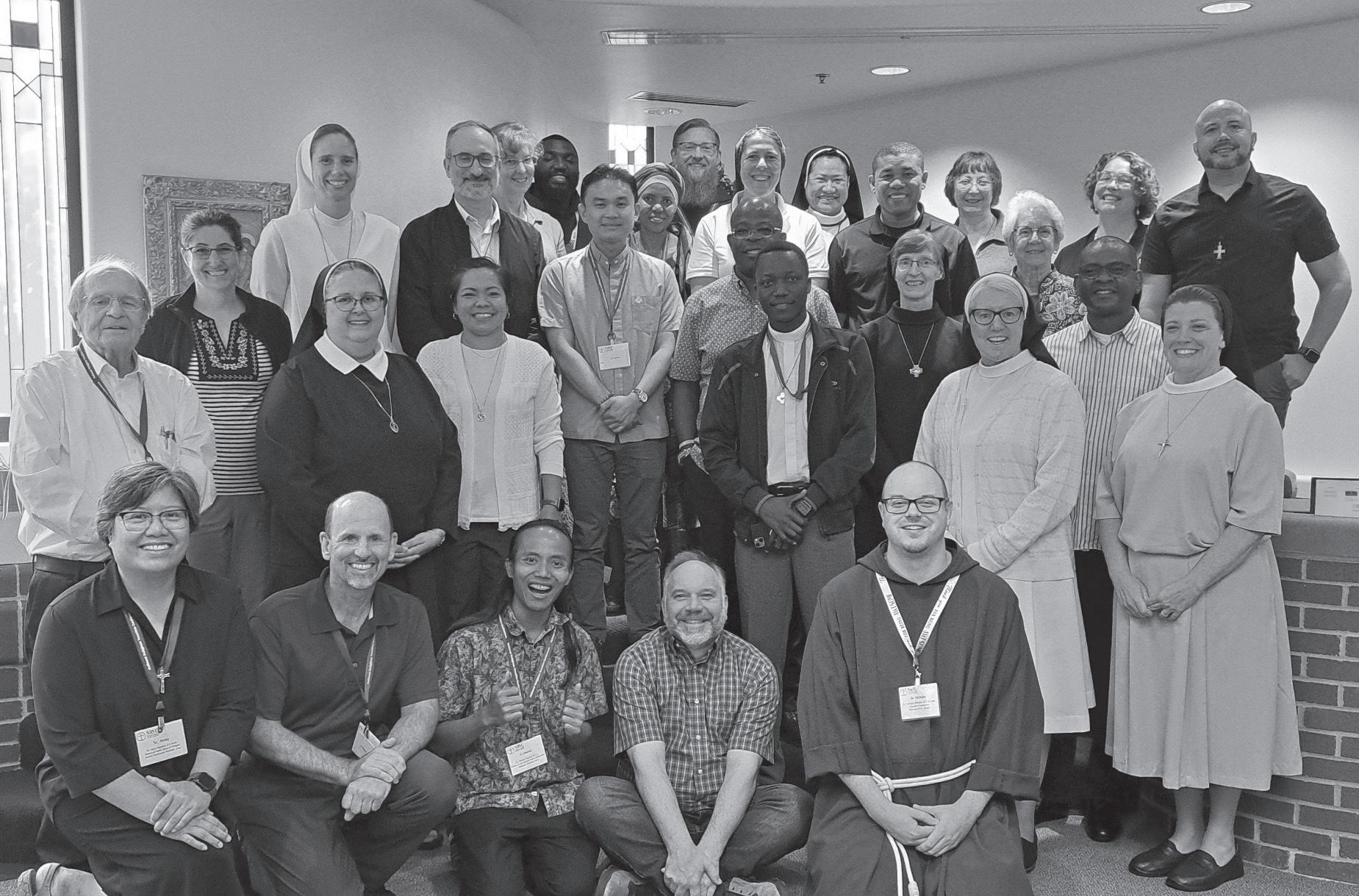
A diverse group of religious from many countries and throughout the United States at an NRVC workshop in July 2025. Assessment of candidates from non-U.S. cultures must be approached with flexibility, patience, and an appreciation for the multitude of ways that a different cultural background influences an English-language assessment normed on Western culture.
THE GROWING DIVERSITY of the U.S. Catholic Church has resulted in greater diversity among those applying for membership in U.S. religious communities. At Saint Luke Institute, we’ve been assessing religious life applicants for 30 years and have been working with religious communities to assess candidates born outside the U.S. for many years.
Our protocol relies on a multidisciplinary team approach comprised of two psychologists and one trained spiritual director. This collaborative approach captures plentiful data, integrates different perspectives, and provides the individual with a rich, positive experience. To learn more about the Saint Luke Institute Candidate Assessment Protocol, please visit our website at SLI.org/CAP.
Assessment of candidates from non-U.S. cultures must be approached with flexibility, patience, and an appreciation for the multitude of ways that a different cultural background influences an English-language assessment normed on Western culture.
In our experience, there are three vital considerations for assessing a candidate born in another country:
By Emily R. Cash, Psy.D
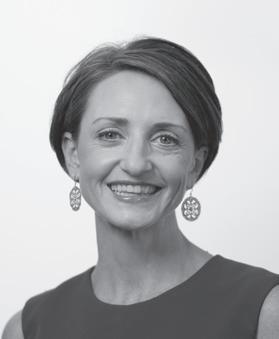
Emily R. Cash holds a doctoral degree in clinical psychology and is the director of Saint Luke Center, a ministry of Saint Luke Institute, located in Louisville, Kentucky. She also serves as the director of the Candidate Assessment Program for the Institute. She has been with the Saint Luke Institute since 2006.
1. A more extensive interview
2. Additional psychological testing measures that have research validating their use with non-native English speakers.
3. Integration of the interview and test data into specific recommendations for the candidate’s long-term success.
EXTENSIVE INTERVIEWING Because psychological testing is normed on a particular population, clinicians performing these tests should allow sufficient time in the interview process to address general cultural norms and understandings. They also need to explore the unique culture of Catholicism in the person’s country of origin, which will shape the candidate’s understanding and expectations of Catholicism in the United States. Another critical topic that needs to be explored in interviews is the candidate’s immigration status. With regularity, candidates are disclosing and describing highly stressful experiences navigating the challenges of securing visas, completing residency documents, and communicating with government/legal officials. Psychologically, these experiences often generate feelings of anxiety, uncertainty, and insecurity. Open dialogue about this topic within the context of the psychological assessment is important in validating and normalizing the stress associated with this process and better understanding how the individual has coped with these very real challenges.
PSYCHOLOGICAL TESTING We recommend that psychological testing be included in the candidate assessment process, regardless of the client’s ethnicity. A standard battery of psychological tests includes a measure of intelligence accompanied by personality testing. Language inevitably plays a significant role in the value of the data gathered from psychological testing. The validity of some tests can be compromised by the individual’s ability to understand and respond accurately to questions.
For candidates from another country, it can be helpful to incorporate additional measures that are less dependent on language comprehension, such as the Thematic Apperception Test or House-Tree-Person Drawings, in addition to commonly used personality measures, such as the Minnesota Multiphasic Personality Inventory, Third Edition (MMPI-III).
Saint Luke Institute’s cross-cultural evaluations also include a cultural adaptability measure to help predict
the candidate’s ability to adapt and thrive in a new culture. These instruments, coupled with strong interview data, help paint a more accurate picture of the candidate’s readiness for successful service and community life in a new culture.
INTEGRATION OF RECOMMENDATIONS Psychological assessment of candidates often focuses heavily on “screening” to identify major behavioral or mental health issues. However, accompanying an individual throughout the discernment and formation experience requires more than a simple screening for mental illness. A comprehensive psychological report will include specific recommendations based on the candidate’s personal history, psychological makeup, spiritual life, and approach to relationships, giving the candidate and community insight into the candidate’s vocation and highlighting areas of strength and vulnerability. In a cross-cultural assessment, these recommendations will be uniquely tailored to the candidate’s needs and will also be informed by the key cultural considerations identified during the testing and interview process. Finally, recommendations should be written with both the applicant and formators in mind.
The following case studies are a compilation of clinical experiences gathered by Saint Luke Institute clinical staff. All identifying information has been changed to ensure client confidentiality.
Born and raised in rural Vietnam, Linh attended a high school and college seminary four hours from his home. Linh initially studied to be a priest in his local diocese but ultimately decided to enter into formation with the religious community staffing the seminary. After taking final vows, Linh returned to his studies to pursue ordination. Because of the missionary charism of Linh’s community, congregation leaders had formed a new relationship with a diocese in the United States and asked Linh to serve in parish ministry there for a period of five years. That diocese asked Linh to undergo a psychological assessment before his assignment.
At that time, Linh had been in the United States for six months. He was initially assigned to a parish with a large Vietnamese community, assisting the pastor in sacramental ministry while attending immersion English classes. His next anticipated assignment was as an associate pastor in a larger, more diverse parish.
The assessment team’s review of the psychological testing highlighted trends common among international
applicants. First, intellectual testing results placed Linh in the average range. Our team speculated that this was an underestimate of his cognitive abilities, given that most intellectual measures were normed on a United States English-speaking population. The psychological tests administered included the MMPI-III and two other personality measures (Rorschach Inkblot Test and Thematic Apperception Test). The MMPI-III results suggested marginal validity and the need to interpret them with caution.
This profile of “marginal validity” on the MMPI-III is a typical finding among international applicants, as some test statements are challenging to translate, and the phrasing is largely informed by American culture. The two projective measures depended less on verbal communication and provided more relevant data. These results indicated Linh was experiencing mild distress and would benefit from developing additional coping skills; he is very conscientious and highly achievement-oriented; he values service to others and places great emphasis on relationships; and he has a healthy approach to conflict.
The spiritual and psychosocial interviews revealed additional helpful data. Linh was positive about his assignment but concerned that he was not yet as familiar with mainstream U.S. culture as he had hoped after spending six months in an insulated parish community. This finding was important to highlight for the diocese: while his assignment to a parish with individuals from his home country initially made sense in terms of easing his transition to the United States, he felt isolated from his new culture and anxious about acquiring the skills and knowledge to serve in an American Catholic parish. Linh also reported feeling overwhelmed and fatigued by having to manage the intensity of language classes in addition to parish responsibilities and disclosed that he had recently been notified that the processing of his religious worker visa had been delayed.
The evaluation team offered Linh and his vocation director recommendations based on interview and psychological testing data. Some sample recommendations:
• Linh could benefit from short-term individual psychotherapy to continue to process his transition to the United States. The team recommended he address some of the issues identified during the assessment process, including sadness over separation from his religious community and the stress regarding his visa status. Linh acknowledged that the stigma associated with mental health
treatment in his country of origin made him somewhat resistant to therapy, but he also indicated he needed increased support while separated from his community.
• Linh was encouraged to communicate with the diocesan vocation director and vicar for priests about his ongoing needs for community and opportunities to engage in presbyteral functions, as well as find practical ways to stay connected to his family and friends in Vietnam. In addition, the team encouraged the diocese to set aside time to explore how they could more tangibly support Linh in securing his visa, as it is a current source of stress for him.
• The team recommended that Linh begin working with a spiritual director for longerterm support and as an additional way to ensure ongoing spiritual growth.
Louisa, born and raised in the Philippines, studied accounting and worked alongside her father for many years. In her 30s, upon her mother’s death and her father’s retirement, she decided to join her siblings, who had previously relocated to the United States. Upon arriving in the U.S., Louisa secured full-time employment in an accounting firm and was free to explore her desire to join religious life, which she had been unable to pursue until then, as she had been caring for her mother.
At the time of her assessment, Louisa had been living and working in the United States for four years. During that time, she began connecting with various religious communities in the region. She entered into dialogue with one religious community for approximately three months, but the community was in transition and eventually suspended accepting new member applications.
Louisa was very disappointed and stopped discerning for a period of six months. However, over time, she realized her desire to pursue religious life was still present, and she returned to active discernment. At the time of evaluation, she had been in regular contact for a year with the religious community to which she was applying. The impressions of the vocation director were largely positive, but she expressed two concerns:
1) the challenge of Louisa being so geographically distant from her aging father, and 2) her difficulty with
speaking directly about concerns and struggles. When concerns arose, rather than expressing them directly to the vocation director, Louisa tended to speak to other sisters about her displeasure. This supplemental data was integrated into the evaluation and discussed during interviews with Louisa.
When the team reviewed the psychological testing results, intellectual testing results suggested high average cognitive abilities commensurate with her early education and professional success in the Philippines and the United States. Psychological testing results from the MMPI-III revealed some difficulties accurately translating the questions, which is common in foreign-born applicants, even with strong language skills and lengthy residence in the United States. Other data from the psychological testing reflected Louisa’s difficulty establishing trust with others; her discomfort revealing more vulnerable or tender feelings; her desire for structure and discomfort with ambivalent situations; and the presence of underlying feelings of anger or resentment.
In the psychosocial and spiritual interviews, Louisa disclosed fears about the possibility of the community closing, identifying this as a significant source of anxiety and insecurity despite repeated assurances from the vocation director. In addition, Louisa was able to speak about being raised in an authoritarian culture where respect for elders was great; she expressed some anxiety about expressing concerns directly to the vocation director because of this. Louisa also relayed fears that her formation obligations would negatively impact her availability to her aging father, who still lived in the Philippines. Finally, she disclosed a history of sexual abuse that occurred when she was a young child, perpetrated by an older male cousin. She tearfully described this experience and how it had impacted her comfort level with males and affected her desire for romantic relationships.
The evaluation team offered Louisa and her vocation director a variety of recommendations based on the interview and psychological testing data. Some sample recommendations:
• Louisa would benefit from developing her interpersonal confidence. For instance, she might identify and talk about anger more directly, tolerate inevitable discomfort in community relationships, learn how to establish trust within relationships, and take healthy interpersonal risks. Because some of these areas of growth could be related to residual effects of the sexual abuse trauma, the
assessment team recommended that Louisa engage in individual therapy to revisit the trauma and develop interpersonal relationship skills. Because Louisa was not in active psychological distress and there was no history of mental health struggles, the recommended therapy could take place before entering into formation or during formation.
• The team highlighted Louisa’s strong connection to her father and encouraged intentional dialogue between Louisa and community leadership about her expectations for nurturing her connection with her father in light of her formation obligations.
• The team recommended that she speak more directly and candidly about her experiences of religious life. Signs of health would be sharing both her positive and more difficult experiences of formation. An indicator of concern would be when those in leadership only heard about things that were going well and saw ongoing evidence that she was sharing frustrations with other sisters.
Juan, born and raised in Argentina, entered a religious community at the age of 22, upon completing his university studies. During formation, Juan fell in love with a woman and discerned out of religious life. He was involved in a romantic relationship for two years and considered marriage, but the relationship eventually dissolved. Upon ending this romantic relationship, Juan relocated to the United States with hopes of returning to school and becoming a teacher.
Upon arriving in the United States, Juan found it difficult to enroll in school, as transferring from an international university was somewhat complicated. During this time, he also had trouble finding steady employment, so he began working in the parish he had recently joined. Juan became increasingly engaged with the parish community and felt his call to religious life returning. A priest from a local religious community had been assigned to his parish, and Juan began a dialogue with him about a return to religious life. The priest began engaging in spiritual direction with Juan and connected him to the community’s vocation director. After a year of discernment, Juan presented himself to the community for acceptance and was asked to participate in a psychological assessment as part of his application.
When the team reviewed the psychological testing results, intellectual testing suggested low average cognitive abilities. Given that Juan spoke positively about his academic performance in university, it is more likely that his cognitive functioning fell somewhere in the average range. On the MMPI-III, Juan elected not to answer several questions; this impacted the validity of the assessment and raised some concern among the evaluation team. Conversation revealed that he struggled significantly with some of the wording and had difficulty comprehending the statements. As a result, and for fear of acknowledging something that was untrue, he did not respond to certain statements. The psychological testing data gathered from other personality measures indicated that he possesses a strong desire to please others; his view of self and identity are often rooted in how others see him; he struggles to reveal what he perceives to be difficult or painful feelings, such as anger; and he has strong fears of being hurt or rejected in interpersonal relationships.
Juan presented for the assessment with enthusiasm, professing a sincere desire to move forward in his religious vocation. He spoke about how lost he had felt following the end of the romantic relationship and how, for the first time in years, he felt at peace with where God was calling him. Juan denied any lingering desires for marriage or children, despite having some difficulty communicating the reasons for the end of his relationship. Juan also struggled at times to verbalize his motivations for his vocation, other than finally finding peace after feeling lost. This lack of clarity was a concern for the team, especially given that when asked about his plans, should religious life not be a good fit, Juan was unable to articulate a “plan B.” Juan reported that the majority of his family, including his parents, still live in Argentina and feel immense pride at his vocation and desire to serve the church.
During the interview process, Juan disclosed that in the year since his relocation to the United States, he had accumulated approximately $20,000 of credit card debt. A portion of this debt was a result of the obligation he felt to continue offering financial support to family members still living in Argentina. He was nervous about disclosing this, as he had not spoken about it candidly with the community. The team affirmed his willingness to come forward with this information and highlighted the importance of transparency with the community. The evaluation team offered Juan and his vocation director a variety of sample recommendations based on the interview and psychological testing data:
• Because of the omission of important information from his initial application, there was concern about Juan entering formation immediately, especially given that he also struggled to verbalize a clear understanding of his motivations for entering, apart from a desire for escape and a sense of security or safety in religious life.
• The evaluation team encouraged Juan and the vocation director to develop these benchmarks for continued discernment over six months:
1. Maintain full-time employment during the time of discernment.
2. Engage in regular spiritual direction with a trained director (preferably Spanishspeaking) experienced with cross-cultural, vocationally-minded directees.
3. Continue discerning his vocation with trusted peers and his spiritual director to further clarify his motivations for entering into formation.
4. Establish a financial plan to help decrease his financial debt.
5. Engage in an ongoing discussion with his vocation director about ways to support his family’s financial needs.
• The vocation director was encouraged to meet with Juan at the end of the six-month period to determine whether he had made sufficient progress towards his goals and was ready to enter into formation with a clearer understanding of his motivations and expectations for community life.
Our multicultural candidates, in pursuit of their vocation, face the challenges of acculturation and ministering in a different culture alongside the growing stressors associated with immigration in the United States. As a result, an ethical and helpful assessment of men and women from other cultures requires a sensitive, culturally adaptable approach.
We encourage vocation directors to press for accurate, integrated, and comprehensive assessments to guide their accompaniment and support of international candidates. Candidates and communities will benefit when assessments are valid, practical, and culturally competent. n
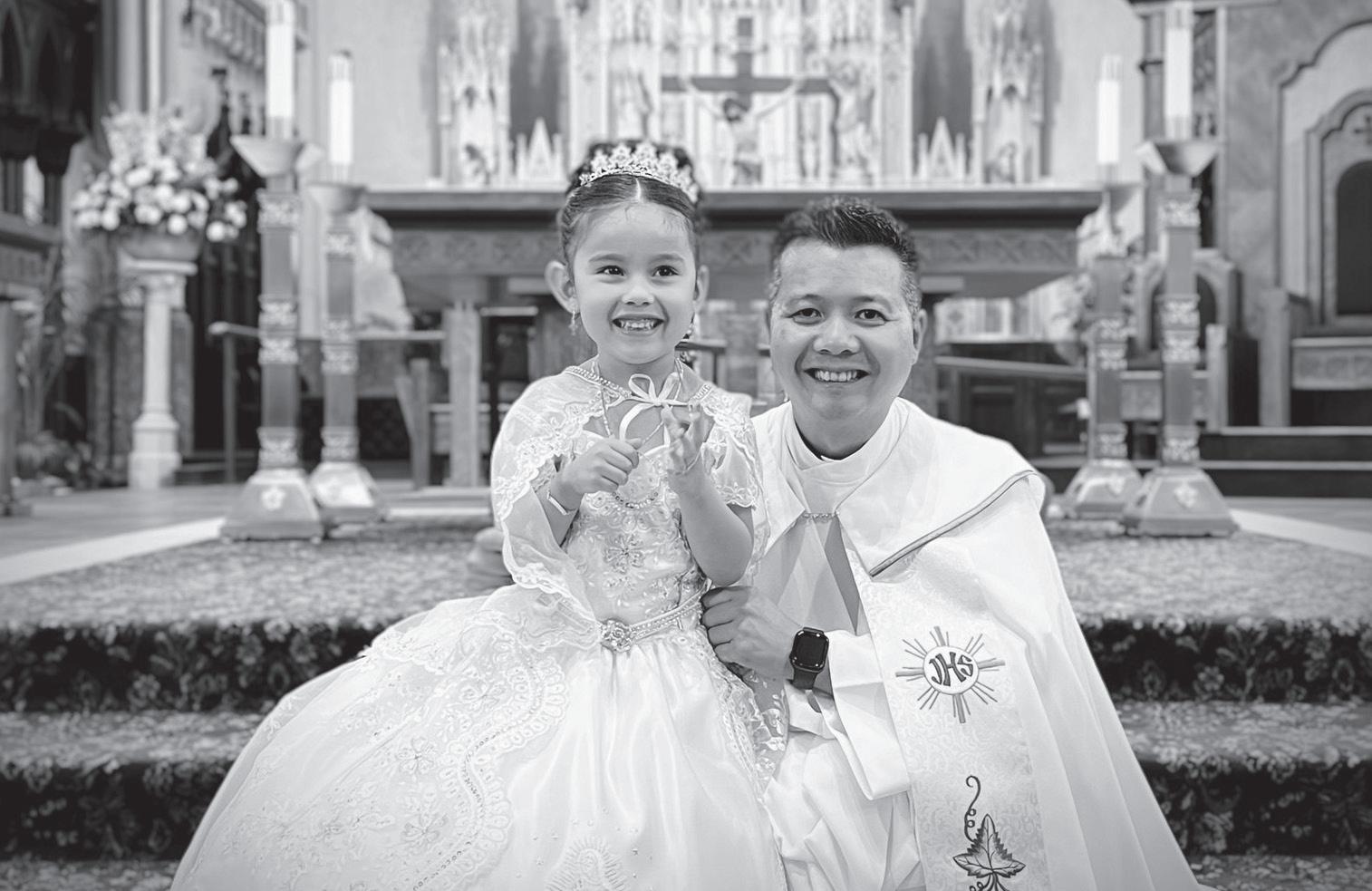
In my role as a pastoral minister, I recognize the vast potential that parishes provide for those seeking to support a robust future for religious life.
By Sister Colleen Gibson, S.S.J.
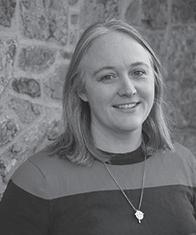
Sister Colleen Gibson, S.S.J. is a Sister of Saint Joseph of Philadelphia who currently serves as coordinator of pastoral care at St. John-St. Paul Catholic Collaborative in Wellesley, Massachusetts. An award-winning writer, she also co-hosts the podcast Beyond the Habit at beyondthehabitpod.com.
OFTEN, WHEN I TELL MY VOCATION STORY, people marvel at the fact that until I met with our congregational vocation director, I had never actually met a sister. Sure, I knew about sisters; I had heard sisters speak and read their writings, but in terms of personal encounters, my experience was extremely limited. If I had never met a sister, people wondered, how did the idea of a vocation to vowed religious life enter my consciousness?
Without hesitation, I point them to the parish where I grew up. Unlike parishes of the mid-twentieth century, with their parochial schools staffed by religious orders, my small suburban parish in New Jersey had a single diocesan priest at the helm. Apart from a retired Benedictine priest who came to help with Masses on weekends, vowed religious were not actively present in our midst. And yet, the idea of vocation most certainly was. The seeds of my vocation were planted and nurtured by the fruits of a parish community fully engaged in living out a culture of vocation. Ev-
eryone had a part to play in our community, and at the heart of each parishioner’s passion and participation was a call steeped in faith. Now, nearly 15 years into my life as a Sister of Saint Joseph, I can see the gift such a vocation culture gave me and to the community in which my early faith was formed. We were (and still are) disciples on the journey, each called in their own way.
In my current role as a pastoral minister, I now recognize the vast potential that parishes provide for those seeking to support a robust future for religious life. This future, in part, is dependent on a personal and communal understanding of vocation. Building a culture of vocation within the context of the local parish provides fertile ground for the Spirit to captivate hearts: encouraging all people to discern their call, building communities of faith that support ongoing discernment, and charting a pathway of discipleship that thinks globally while acting locally.
While every parish is as unique as its members, it has a profound responsibility and potential to build and maintain a vocation culture. Delving into key aspects of parish life—from liturgy and pastoral care to adult faith enrichment and children’s faith formation—and framing the life of the parish through the lens of vocation, we can discover the many possibilities for vocation promotion that exist on the parish level.
At its core, the parish is the heart of a community. Beyond geographic boundaries or Sunday obligations, the parish is where the People of God gather to share the joys and sorrows of life. Comprised of people from all different walks of life, the parish is a place for everyone. No matter one’s age or race, state of life, or status in society, all should be welcome.
As the Second Vatican Council’s “Decree on the Apostolate of the Laity” (Apostolicam Actuositatem) makes clear, the parish “brings together the many human differences within its boundaries and merges them into the universality of the Church.” In this way, the parish acts as a cell in the larger body of the Church, providing a space where the People of God can gather to share life while mirroring the life of the larger church by providing opportunities to grow spiritually and socially.
In this way, the parish is a place of convergence and conversion. More than a hub of activity or activities (no matter how good they are), the parish is a hub for communion: for shared life and worship, prayerful practice, and nourishment of discipleship. As Pope Francis made clear in writing to parish priests in May 2024, “We will
never become a synodal and missionary Church unless parish communities are distinguished by the sharing of all the baptized in the one mission of proclaiming the Gospel.” Creating a vocation culture in a parish hinges on a mission not meant for some but for all
For this to come to fruition, two things are necessary: 1) People must encounter Jesus and the Good News of the Gospel in the parish time and again, in prayer and community, and 2) They must know they are called, by their baptism, to bring the Good News of Jesus to all the world.
Building a culture of vocation within the context of the local parish provides fertile ground for the Spirit to captivate hearts: encouraging all people to discern their call.
Seeing parish life through the lens of vocation invites the whole parish community to something larger than itself. We are all called to encounter Christ. By emphasizing this movement, the parish sends and sustains the People of God throughout their lives. Viewing parish life this way also invites each member to consider their own part, not only in the cell of the parish but in the larger body of Christ. With such a vision, each parishioner comes to see that discerning and following God’s call is a lifelong journey.
From this foundational perspective, a culture of vocation can take form within a parish, and the possibilities are endless. While creating an integrated vocation culture takes time and intention (as well as discernment of a community’s capacity), considering how a greater awareness and understanding of vocation can be integrated into key aspects of parish life provides a vision for where the creative pathways to such a culture might begin.
A few years ago, I was invited to facilitate a session on religious life and vocation for those in a large urban parish preparing to enter the church. Hearing about the group of nearly 30, I realized that the regular “vocation talk” I give to groups of students wouldn’t do. This Order of Christian Initiation (OCIA) group varied from their early 20s to mid-60s; they were largely married or engaged to be married, with some in established careers and others just completing their studies. I wondered to myself: What did they need to hear? How could I frame my religious call story to meet them on their journey?
Perhaps the most obvious place for traditional vocation promotion in a parish is within religious education programs and children’s faith formation. Planting seeds of vocation early in life is an important step in forming our youngest parishioners and, ultimately, creating a parish vocation culture. The focus of such promotion efforts, however, cannot be limited to children, as discussing vocation needs to be integrated into all aspects of parish life if vocation is to be seen as a lifelong process, which everyone is initiated into by virtue of their baptism.
To take hold of hearts, vocation must be symbiotically linked to the sacramental life of the parish. Through the sacraments, each person is invited into a personal relationship with Jesus. We become what we receive, and we live out what we believe. In this way, the grace of the sacraments invites each member to encounter the grace of God in a particular way, growing in faith and love through active participation in the liturgy, ongoing faith formation, and parish communal life.
Embedding teaching about vocation into the sacramental life of the parish is essential to building a pervasive culture of vocation. As the United States Bishops make clear in “Listen, Teach, Send”, the 2024 Pastoral Framework for Ministry with Youth and with Young Adults, all believers must be formed in the faith within the parish, called to be disciples active in the world, and sent forth strengthened by the grace of the sacraments.
Creating a parish culture of vocations means crafting liturgies that emphasize that each member, no matter how old or how young, is called by God to a life of holiness and wholeness. Within the Mass, this theme can be integrated into musical choices, preaching, and universal prayers. These elements also provide the opportunity to see a variety of people living out their vocations as liturgical ministers, promoting vocation in a broad sense and raising awareness of particular vocations, such as the call to religious life, holy orders, single life, and marriage.
While the everyday practice of the sacraments provides opportunities for vocation promotion, a keen focus on the Sacraments of Initiation (Baptism, First Eucharist, and Confirmation) provides a means by which vocation culture can become more engrained in a parish. In preparation for each of these Sacraments, emphasis on formation should be given both to those receiving the sacrament as well as the family and sponsors who play a critical role in accompanying them.
Among youth, questions of who you are, whose you are, and who you are called to be are a wonderful framework for formation. In particular, those preparing for
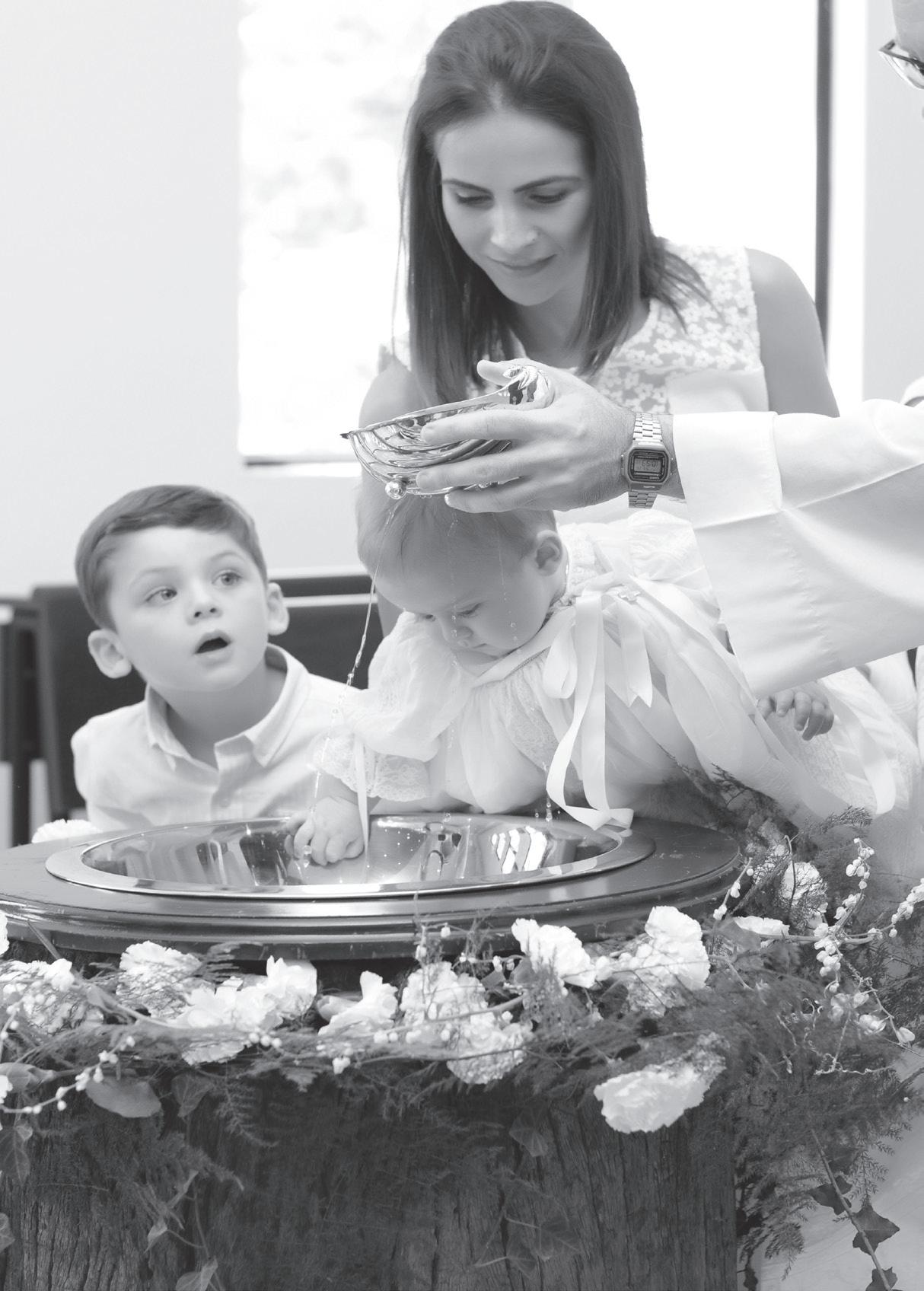
Confirmation can be invited to consider what the commitment they are making has to do with God’s call in their lives. Here, the consideration of key elements, such as taking a confirmation name, renewing one’s baptismal vows, considering what it means to be called forth from and by a community, and choosing one’s sponsor, can all work to help young people reflect on their vocation and the vocation of others within their faith community.
Recognizing that Sacraments of Initiation welcome believers into the community of the church, it is critical also to consider the formation of those who accompany those being initiated. For families preparing for baptism, this means using baptismal prep as an opportunity to lift up the vocation of parents. It also means underscoring the vocation of parenthood within the liturgy, celebrating baptism within the context of Sunday Mass, so that the whole community may witness it, and making a point of including blessings of the mother and the father in their special roles in the life of their child. Emphasizing these elements highlights the family’s unique part in passing on the faith, while also inherently tying the domestic church to the parish community that nurtures
and supports families. For families preparing for First Communion and Confirmation, time can be set aside for adult catechesis sessions, so that parents and guardians feel more confident in their role—indeed, their calling— to be teachers of the faith. These sessions provide input and teaching on the sacrament, the rite, and church teaching. More importantly, they provide opportunities for prayer and communal reflection by adults on their own journey and that of their children, as well as a forum to ask questions as they navigate these important moments of initiation.
This final point helps provide guidance along the way and instills a vocation culture. I will never forget having run one such session for adults accompanying Confirmandi, when a mother, after ninety minutes of prayer, sharing, and input, raised her hand from the back pew and asked, “What should I tell my daughter when she asks me about women’s roles in the church? When she asks me why I stay in the church?”
In unison, one hundred heads turned, eagerly awaiting an answer. “Tell her about your experience,” I responded. “Tell her what you struggle with and what helps you to keep the faith. Tell her about your vocation and about what it means to be a disciple in an imperfect world and an evolving institution.”
liturgical season. Each week, before the final blessing, a pastoral minister would announce to the congregation what the question for the week was. Every question revolved around the message of the Sunday scripture, inviting parishioners to consider their call to live lives of faith.
For example, in the fourth week of Lent, the question read, “ The Parable of the Prodigal Son invites us to consider the relationships in our lives and the extravagant love of God that is offered to each of us. Whether we are lost or found, Jesus says to each of us, ‘You are here with me always; everything I have is yours.’ (Luke 15:31)
Is there an area in your life (a relationship, feeling, emotion, or habit) that feels lost or separate from God’s love and mercy? What would it mean to let God embrace this area of your life?”
Promoting a vocation culture within a parish means journeying together, facing life’s big questions and transitions in community, and calling one another to listen deeply to God’s call as it echoes at every stage of life.
The woman smiled. I don’t think it was the answer she expected, but it was the answer that she needed. Sacraments of Initiation welcome people into the church more fully, to be fully who God has made them to be. Sharing our personal experiences of faith and vocational journey creates a space of welcome and of growth. We grow together when we walk together, with God and with one another.
To be missionary disciples, we must walk together. Like the disciples sent two by two, we never journey alone. Promoting a vocation culture within a parish also means journeying together, facing life’s big questions and transitions in community, and calling one another to listen deeply to God’s call as it echoes at every stage of life.
In our parish, this past Lent, this meant a simple and yet probing question placed at the end of each liturgy. The “Question of the Week” seemed like a way to engage the largest swath of our parishioners during this special
The response to such questions from the community was overwhelmingly positive. People took them to heart and discussed them with others. Framed as a “mini retreat” for the parish, these questions were promoted on social media and printed in the weekly bulletin. Parishioners who might only be present on Sundays found themselves engaged in a way that reflected to them that their presence mattered and that their life in the world reflected the call they heard each Sunday.
Asking parishioners to reflect on how they live their faith is a step toward helping them chart their vocational path. Active engagement in such questions prompts personal and communal reflection and helps every person see that one’s call is a lifelong journey.
In a unique way, the parish occupies a space like no other in helping believers understand and explore their vocation as part of the larger church and world.
Establishing a culture of vocation within a parish creates a space where community can come together to rejoice in God’s gifts and respond to God’s call by putting those gifts into action both individually and communally.
As we look to promote religious vocations, where better to plant the seeds of the future than in the parish? There they will be tended by people of all generations, those who have heard God’s call and who, by the grace of God and the support of faith-filled communities, are trying their best to live out the gifts of faith given to them, to encounter Jesus, and to give example so that others might embrace the joy found in a life well lived. n

WHAT DOES IT MEAN for religious to listen to and be guided by the Holy Spirit in this time of utter transformation? Everyone agrees that the Holy Spirit is important, but what does it actually entail to seek the Spirit moving among us? Sister Judith A. Merkle, S.ND.deN., a religious studies professor, tackles these questions and more in Sensing the Spirit: Toward the Future of Religious Life (T&T Clark 2023). Her book offers challenges for both communal and personal reflection. For example, she daringly suggests that the Spirit may be behind this moment of “crisis” in religious life. She also suggests that the Spirit is used to justify a lack of preparation or the absence of transparency in decisions.
Merkle begins by drawing on the biblical image of the mustard seed to set up her exploration of the process of unfolding. She encourages readers to pay attention to seeds already present in religious life and tend them for the future. She challenges us to face hard truths, such as the fact that many plant and animal species are now extinct and that religious often “drift into nostalgia and vague spiritual platitudes.” She further highlights the difficulty of being surrounded by secular spaces that do not help people to know God. These points set up the purpose of religious life: to witness to the reign of God within our lives.
Next, Merkle introduces the evolutionary concept of the niche--a unique relationship between a species and its environment and between it and other species. The niche encompasses everything needed
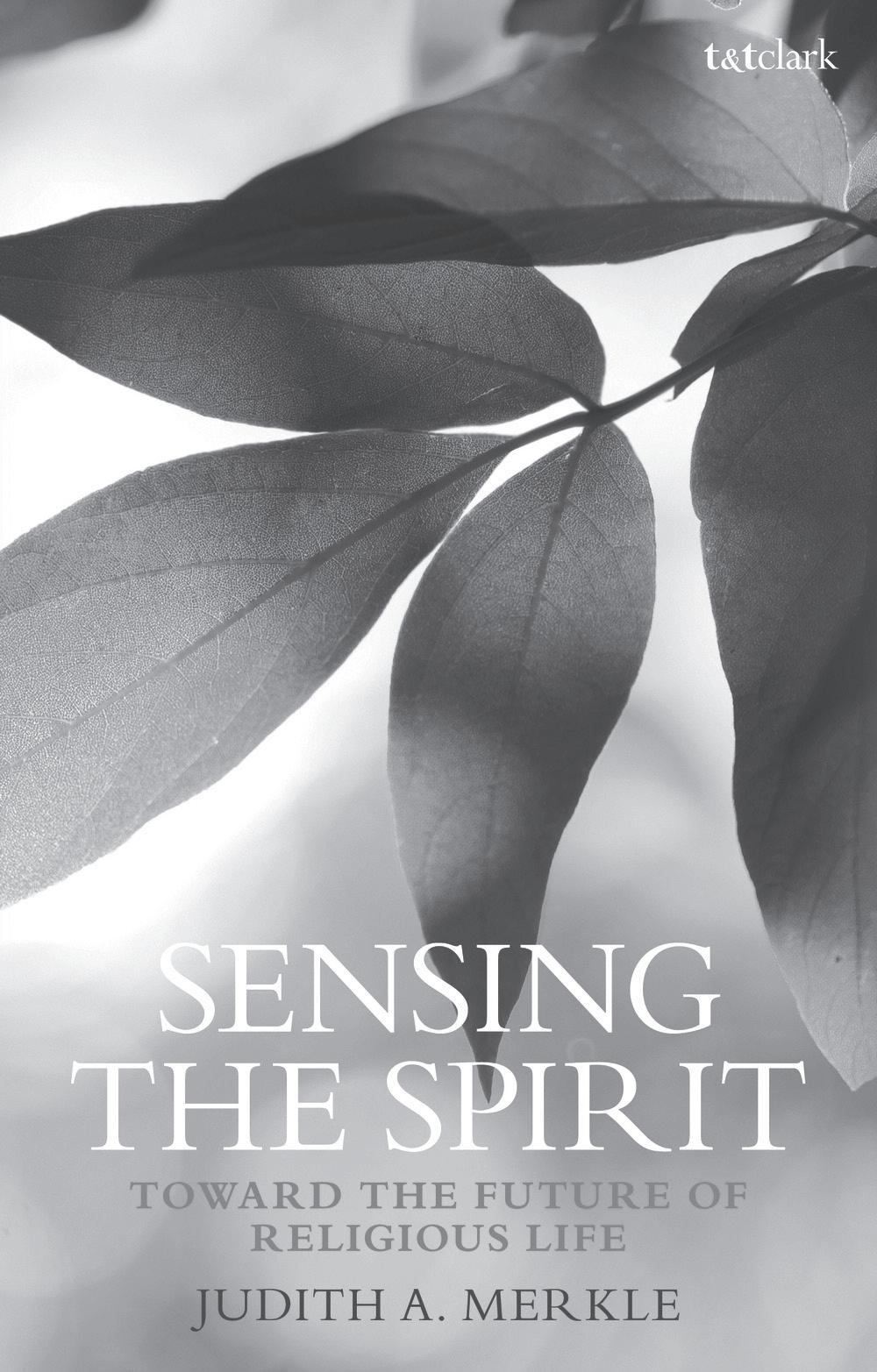
By Sister Sarah Kohles, O.S.F.
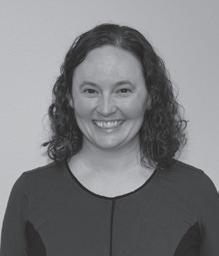
for survival. Disturbing the natural balance of the niche space occupied by religious life could result in extinction or evolution, Merkle notes. She reviews key moments in the evolution of religious life, from the monasticism of Benedict to the mendicant life of Francis of Assisi to the founding of new, service-oriented orders after the Reformation. Ultimately, Merkle suggests that the corporate identities of our past—including the founding cultural flavor of our communities as well as our corporate ministries—must evolve into a new identity in a complex world. She asks important and challenging questions: “Has cultural change so impacted religious life that it cannot survive? Has its niche been so disturbed that, ‘as a species,’ it will become extinct?”
In Chapter 3, “Beyond Survival,” Merkle notes that species do adapt to new environmental challenges, pointing a way forward for religious life. She sees a potential for religious life to bridge the sacred and secular. Religious life, like the church, is “a sacrament of God’s presence in the world,” she contends. The Spirit’s charismatic action in the world can be creative, rational, and transformative. The religious experience involves moving beyond oneself and surrendering to something larger, presumably God. As religious interact with the world, we face its pain and injustice, and we also risk mirroring the world’s injustices within our own communities. Religious are called to serve as a witness to that which truly matters in our world.
is meaningful, more specifics on what it means to live the vows would have deepened this chapter.
Further into the book, Merkle notes that this moment in religious life is characterized by vulnerability, and she offers reflections on the “search for next steps.” She advocates for religious to be involved in dialogue with both the church and secular society. She poses the question: In a world where fragmentation abounds and all we know is uncertainty, what holds us together? Merkle presents thought-provoking points that left me reflecting upon whether religious communities have narratives strong enough to bind them together. Finally, the book’s essays share four main threads of ecological wisdom that can be woven into our Catholic faith.
“What time is it for us? Are we just beginning? Is it time to pass our charism to another generation? What do we need to do this … what rituals do we need to help members understand their identity and mission now?”
Merkle continues with a chapter entitled “The Vows in Secular Culture.” Religious engage the secular when they see the vows as a gift of self and a way to follow the gospel, she says. People seek wholeness. Religious often work with laity who want to offer direct service, do charity, work for justice, and in general do good in the world. Our self-emptying and turning toward God, along with God’s reaching toward us, is transformational. In fact, according to Merkle, conversion happens out of an experience of God’s love and our search for something more than ourselves. She expands traditional reflections on the vows. For example, she notes that poverty, among other things, is about living with the limitations of smaller numbers and not pinning all our hopes on our institutions. She reflects on the expansive nature of voluntary celibacy and sees obedience as collaboration with “real people” in community. While her discussion of the vows
As she further unpacks the lives of religious, Merkle discusses charism as shaping our response to the pain and evil in the world. She invites communal reflection on meaningful questions:
“What time is it for us? Are we just beginning? Is it time to pass our charism to another generation? What do we need to do this … what rituals do we need to help members understand their identity and mission now?”
In her chapter “Adaptations for a New Environment,” Merkle explains that there is no one right way forward. Religious must work to embrace lives of authenticity. The Spirit’s guidance includes the likelihood of surprise because none of us can fully wrap our arms around the Spirit. Religious are called to respond to the issues of the day. Humans can be disappointed if our planned futures do not come to fruition, but remaining grounded in something larger keeps us anchored in hope. Merkle argues that discernment guided by the Spirit is more than decision-making.
§§§§
Sensing the Spirit is a worthwhile book for pondering our current moment in religious life. It is well-grounded in the thought of a wide array of theologians, yet remains accessible for a variety of readers. Ultimately, this book is valuable for those learning about religious life and for those reflecting on its future. n

Mary embodied the presence of God, befitting for the reality in front of her. Scripture never reveals Mary striving for prestige because she was the mother of Jesus. Nor did she remind Jesus, who brought him into the world, when his words warranted this worldly response. She led with quiet grace, understanding, as did her son, that all glory belonged to God. She understood the “Mission” was the salvation of humanity, not her earthly status.
How are we cultivating the spiritual grace to live our spiritual mission with the grace and humility of Mary? Does earthly success overpower God’s purpose for your gifts? Are your thoughts focused on the struggle or the heavenly opportunities hidden within the limits, challenges, and obstacles of life? Mary learned to consciously live with grace amidst unbearable circumstances, without complaining. May her model be a mirror of what is humanly possible.
Sister Gail Trippett, C.S.J.
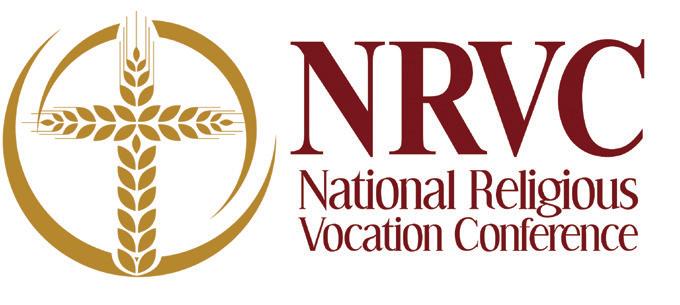
5416 South Cornell Avenue
Chicago, IL 60615-5664
www.nrvc.net | nrvc@nrvc.net | 773-363-5454
2026
March 1 - May 8
July 19 - August 21
October 4 - December 11

2027
March 7 - May 14
July 18 - August 26
October 3 - December 10
The demands and expectations of full -time ministry are both rewarding and fulfilling; however, it is important to take time to rest & renew. Envision a sabbatical filled with silence. The emphasis of the Contemplative Study and Retreat Sabbatical is on spirituality, specifically spirituality that is anchored in a contemplative attitude & approach towards life. The atmosphere provided by the Sonoran Desert is essential to the experience. The desert, if we allow it to serve as a metaphor for our spiritual journey, can provide unique access to God. We believe that the desert experience is an important part of what makes the Contemplative Study and Retreat Sabbatical opportunity unique.